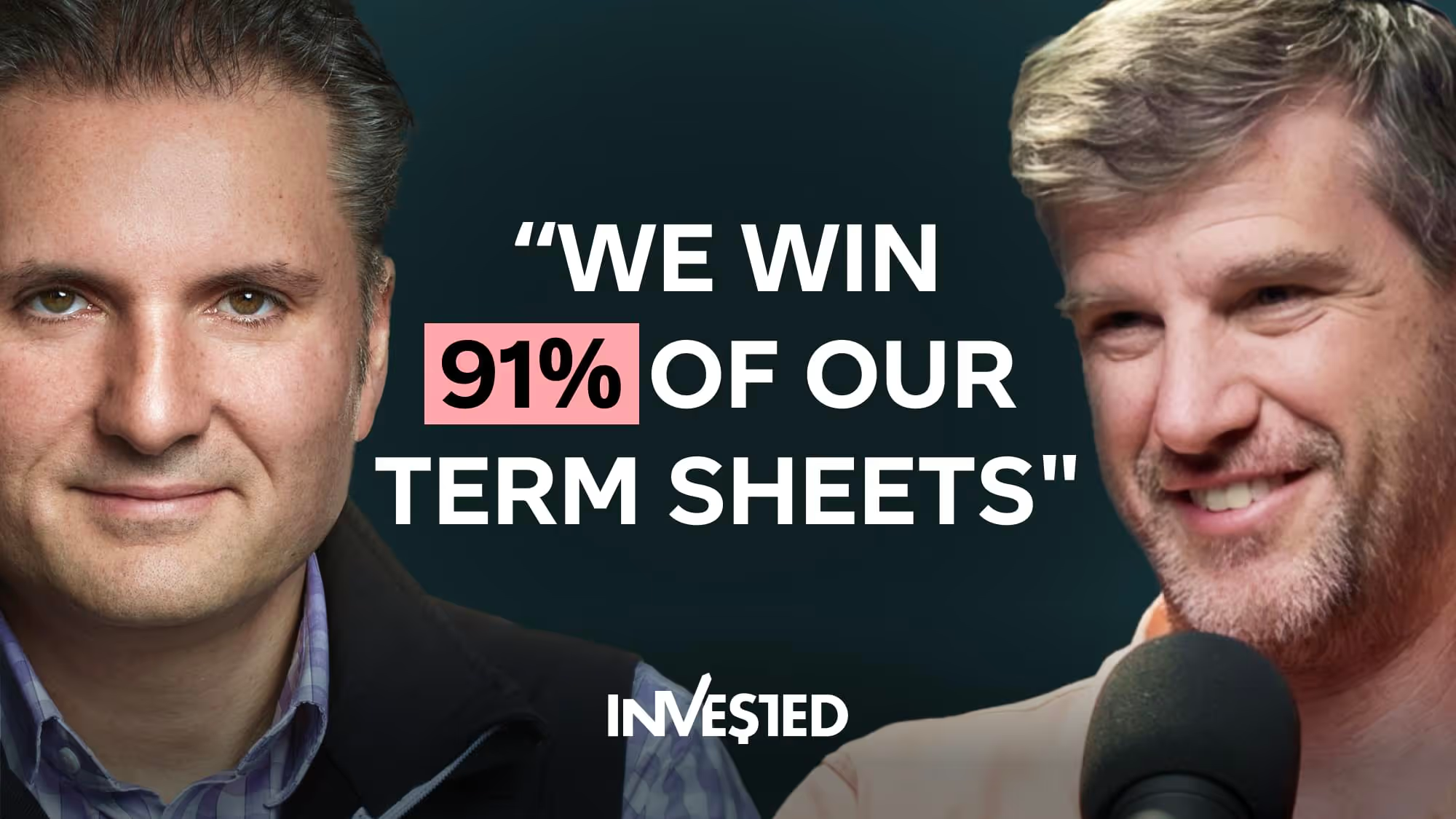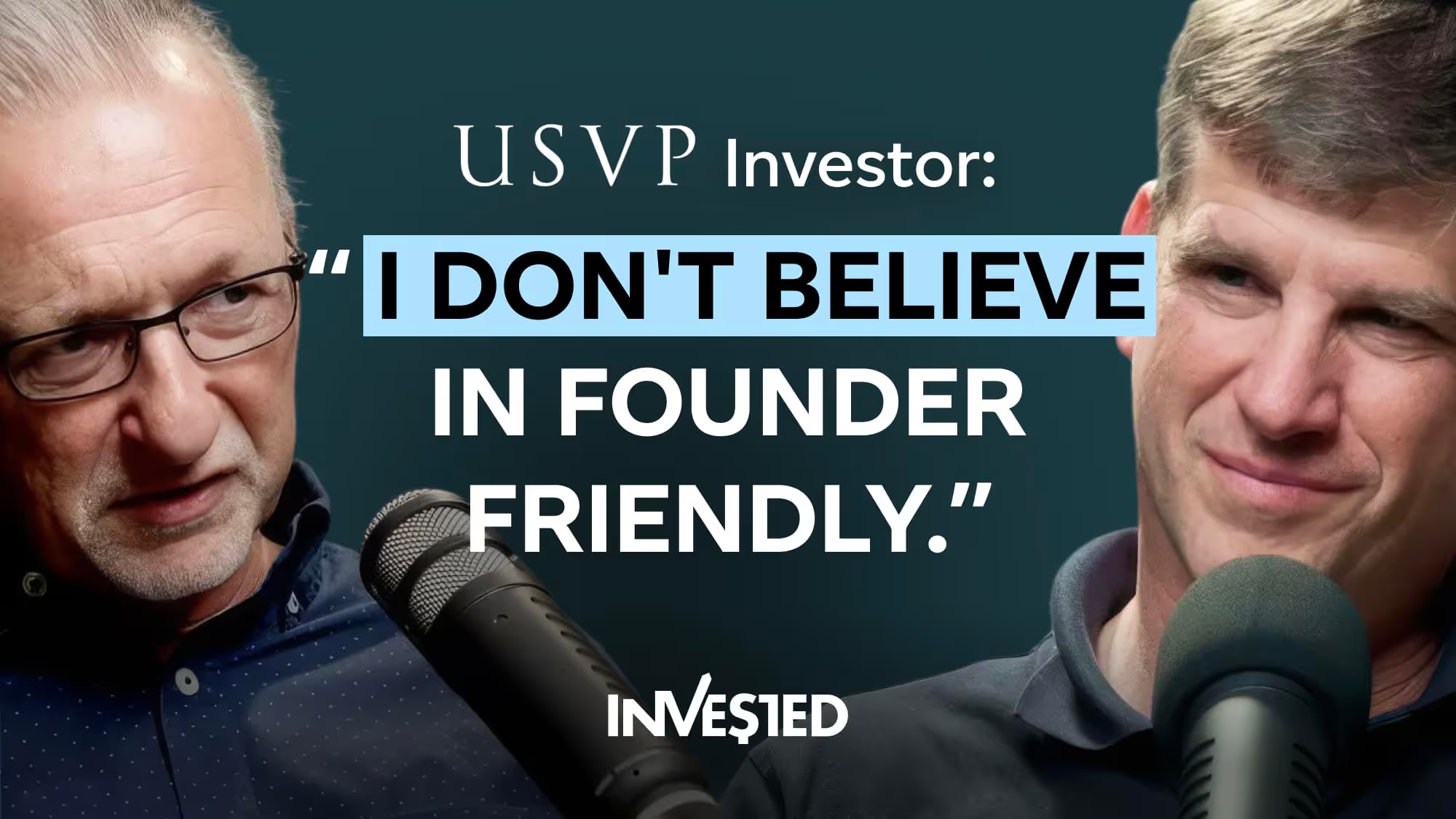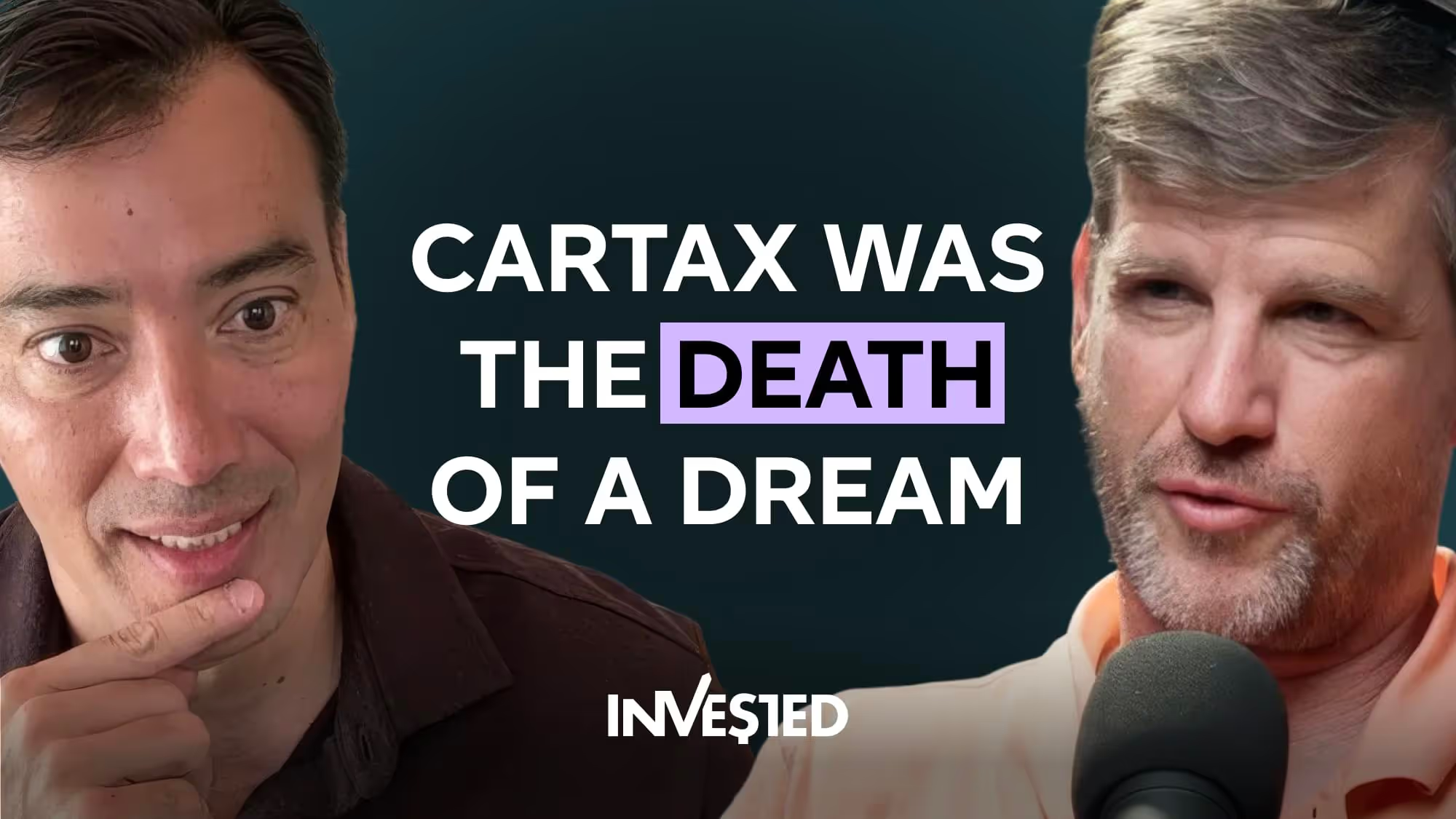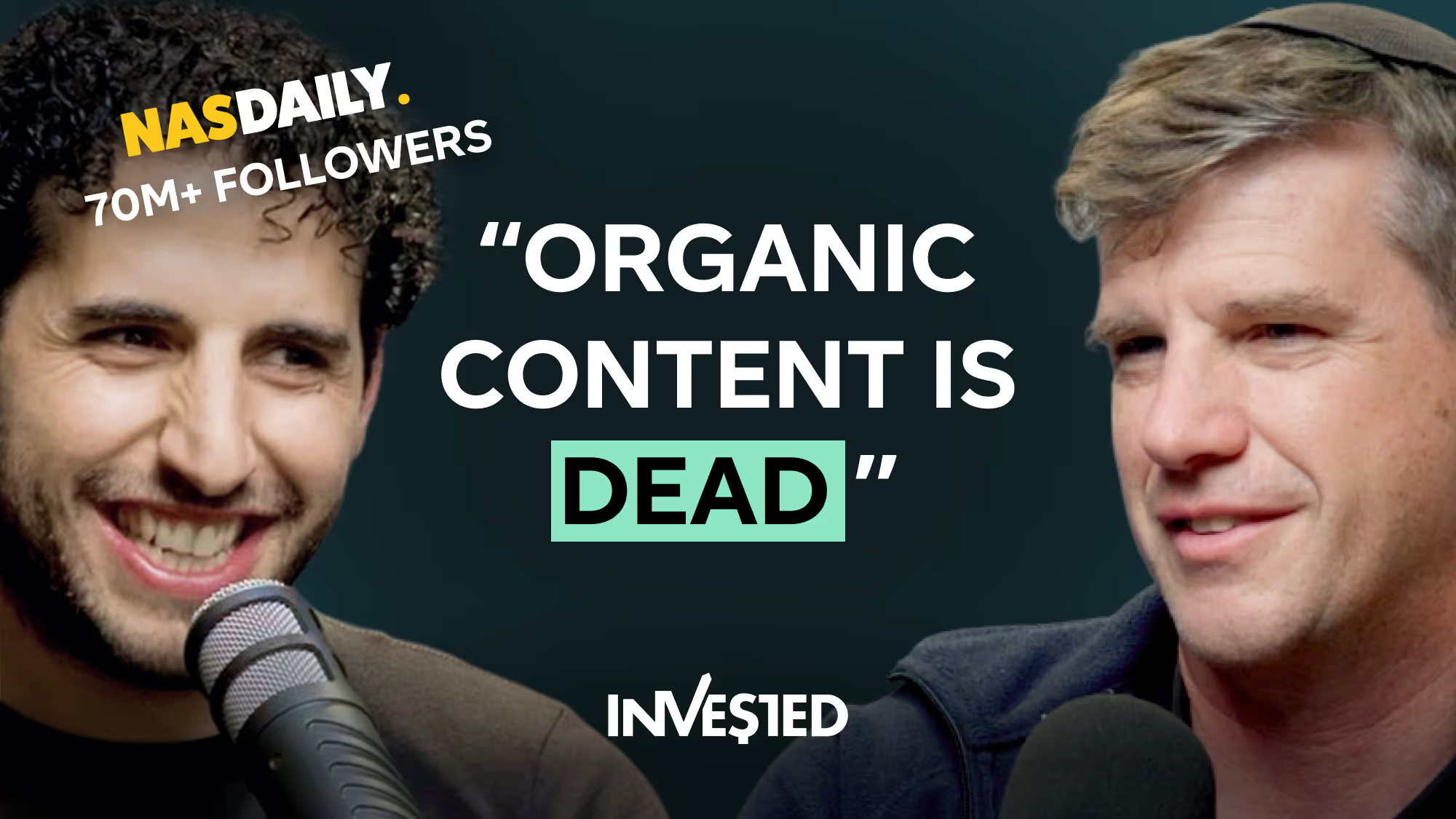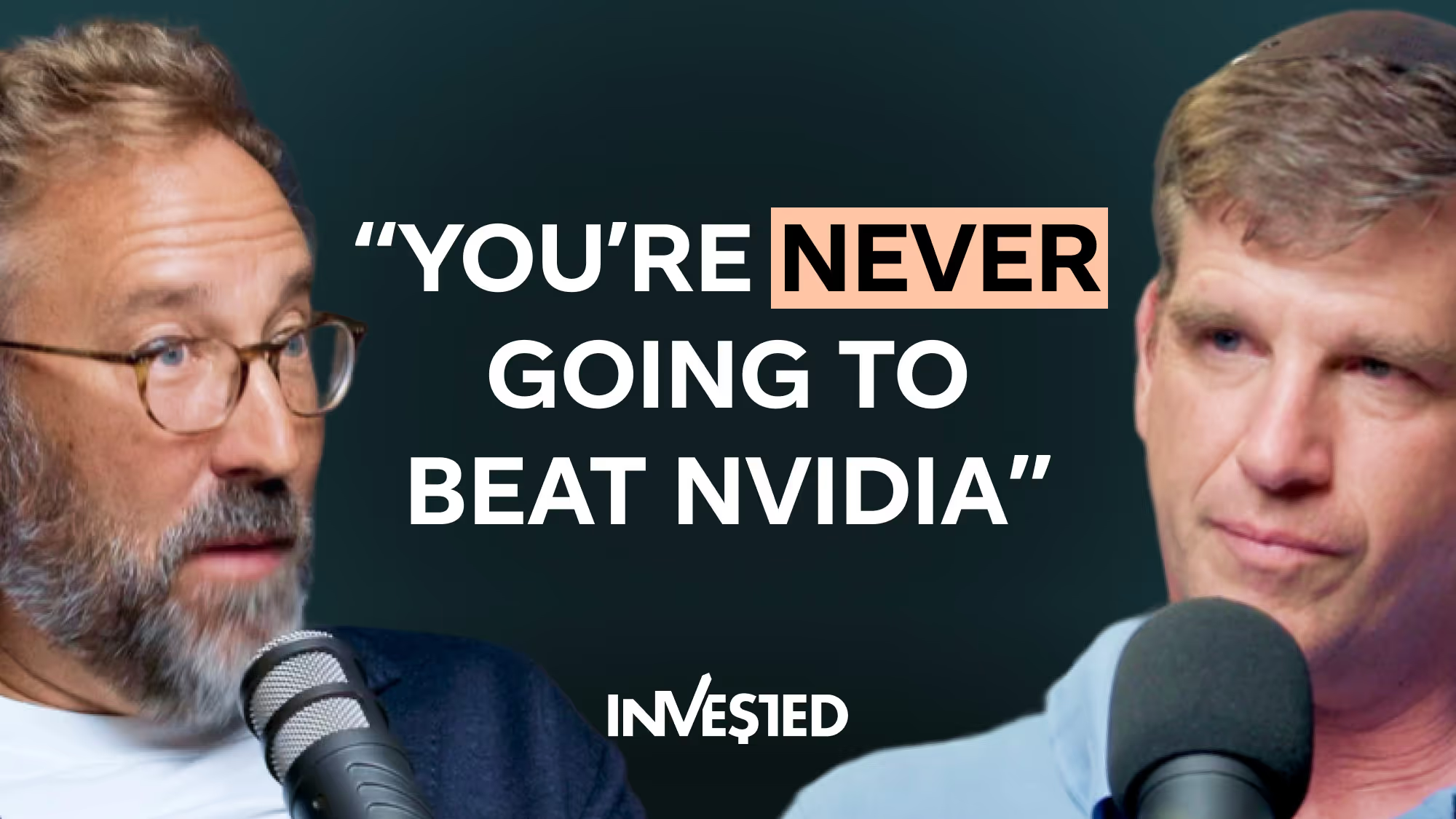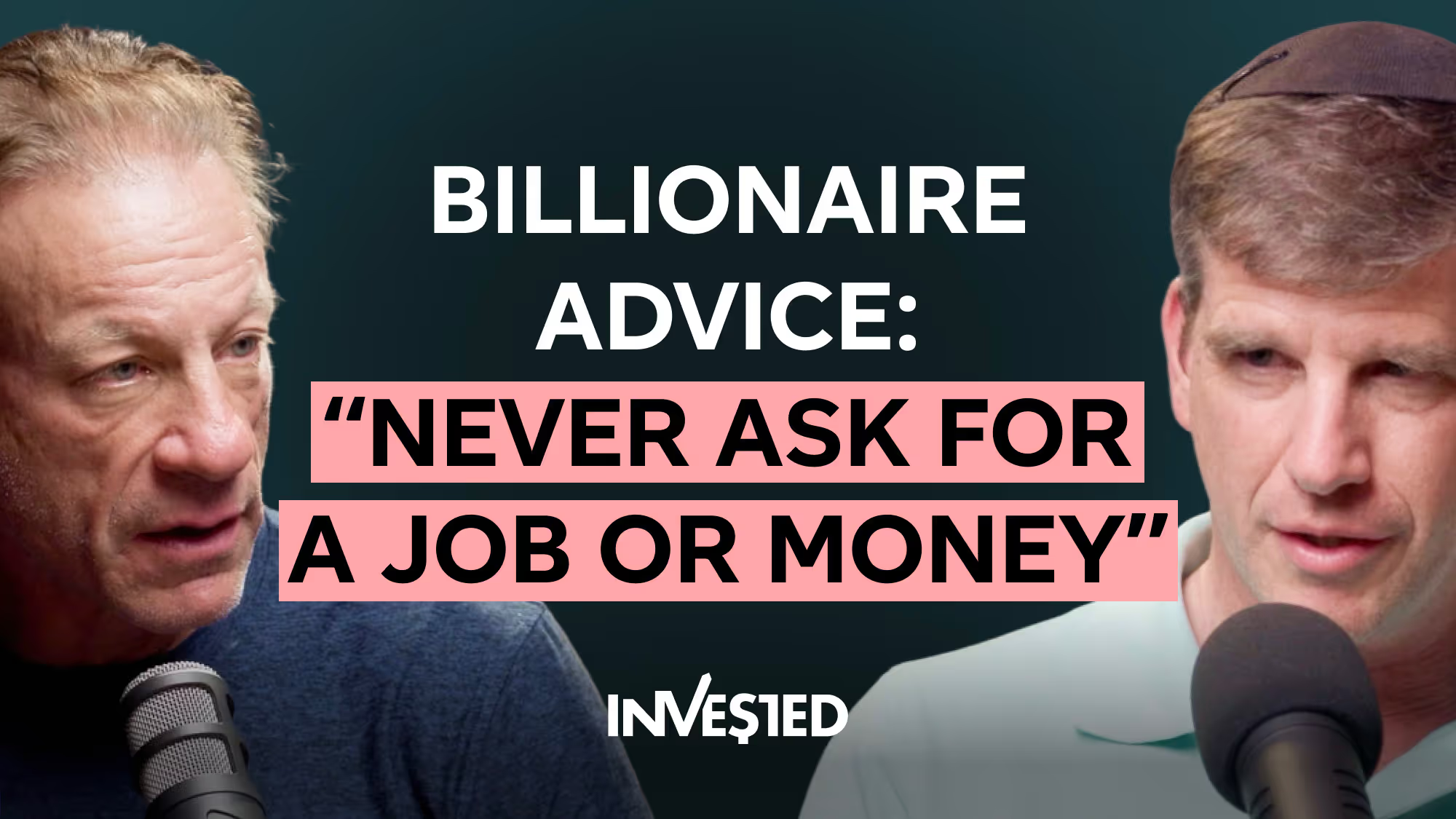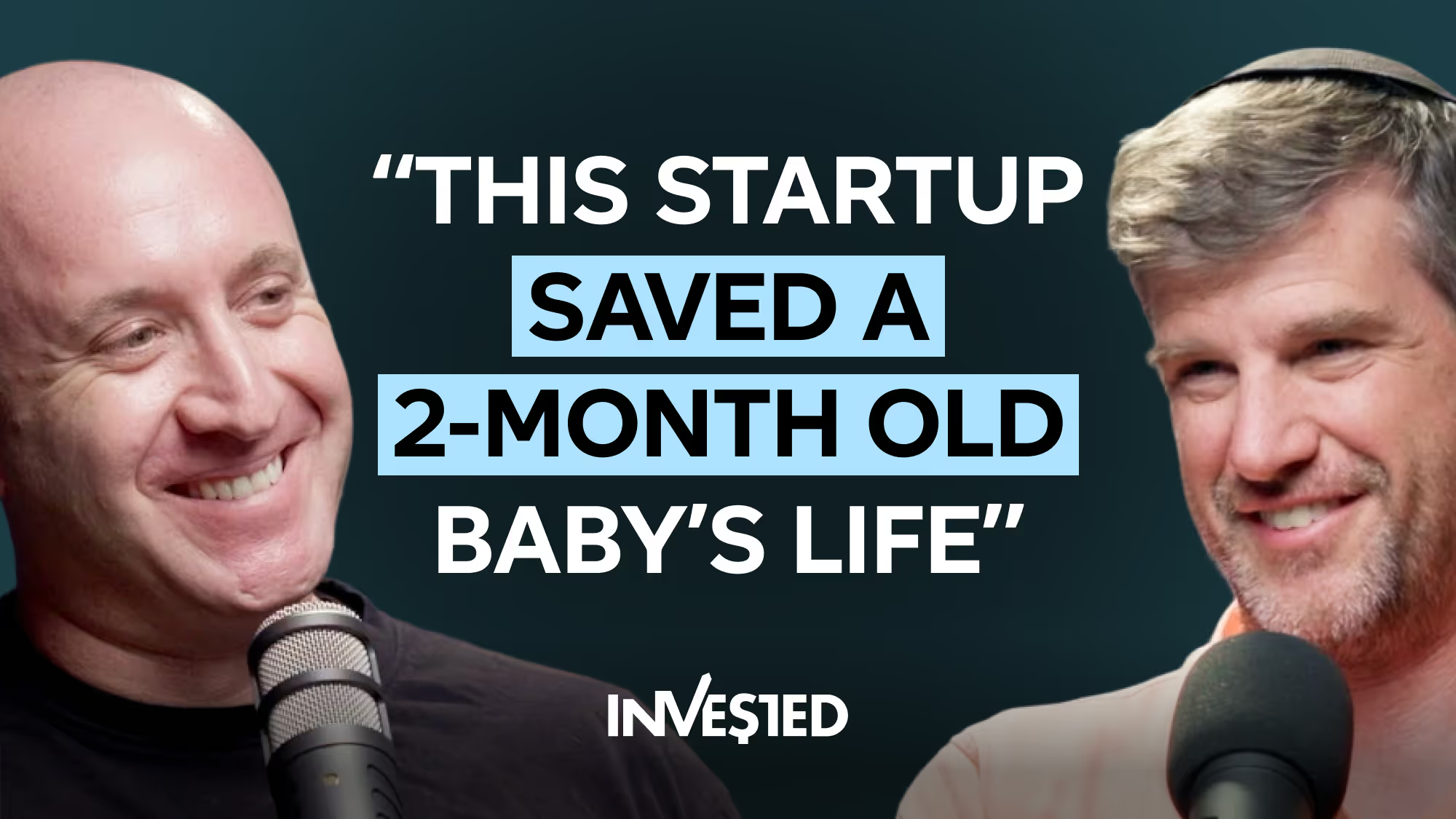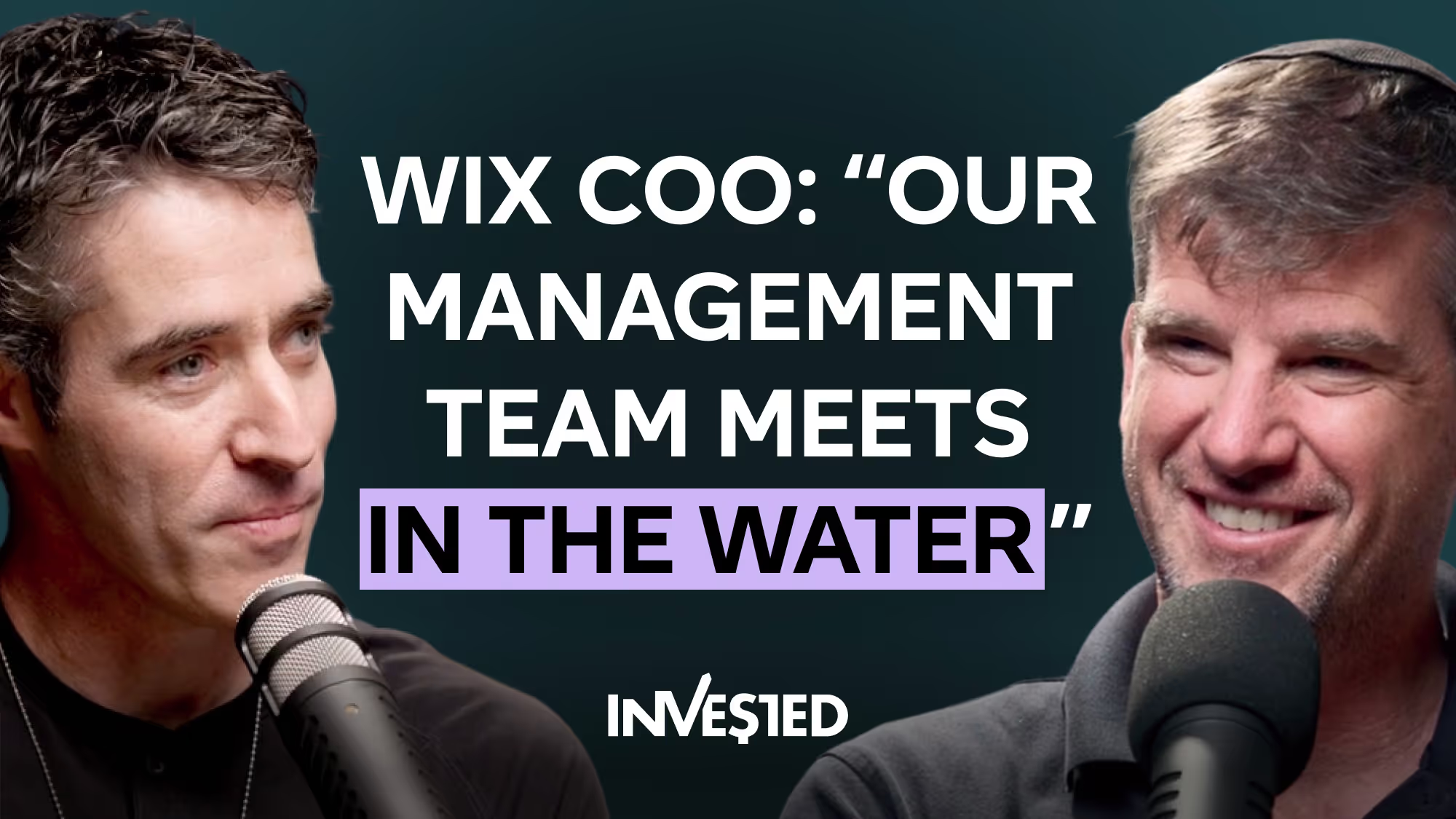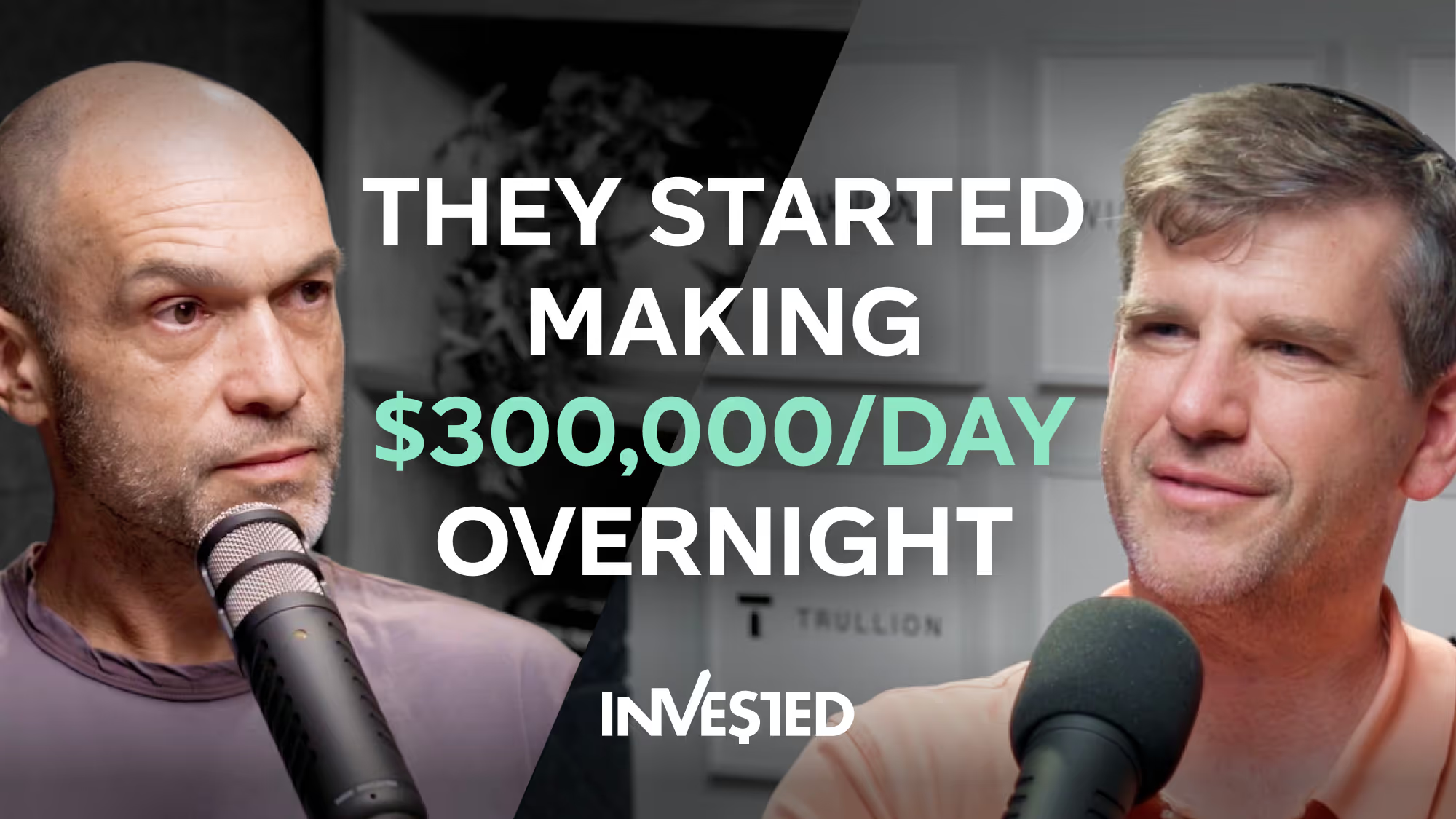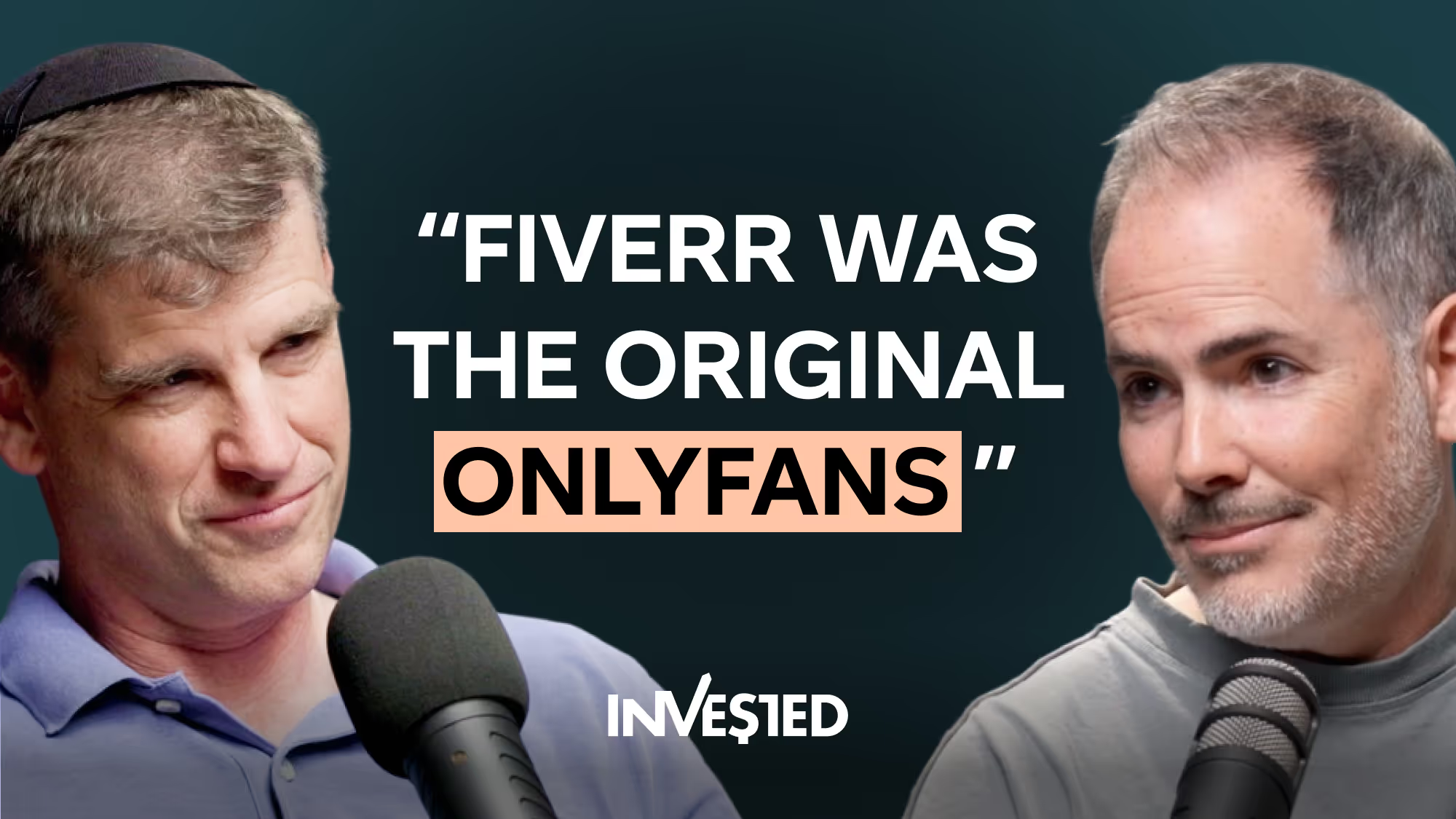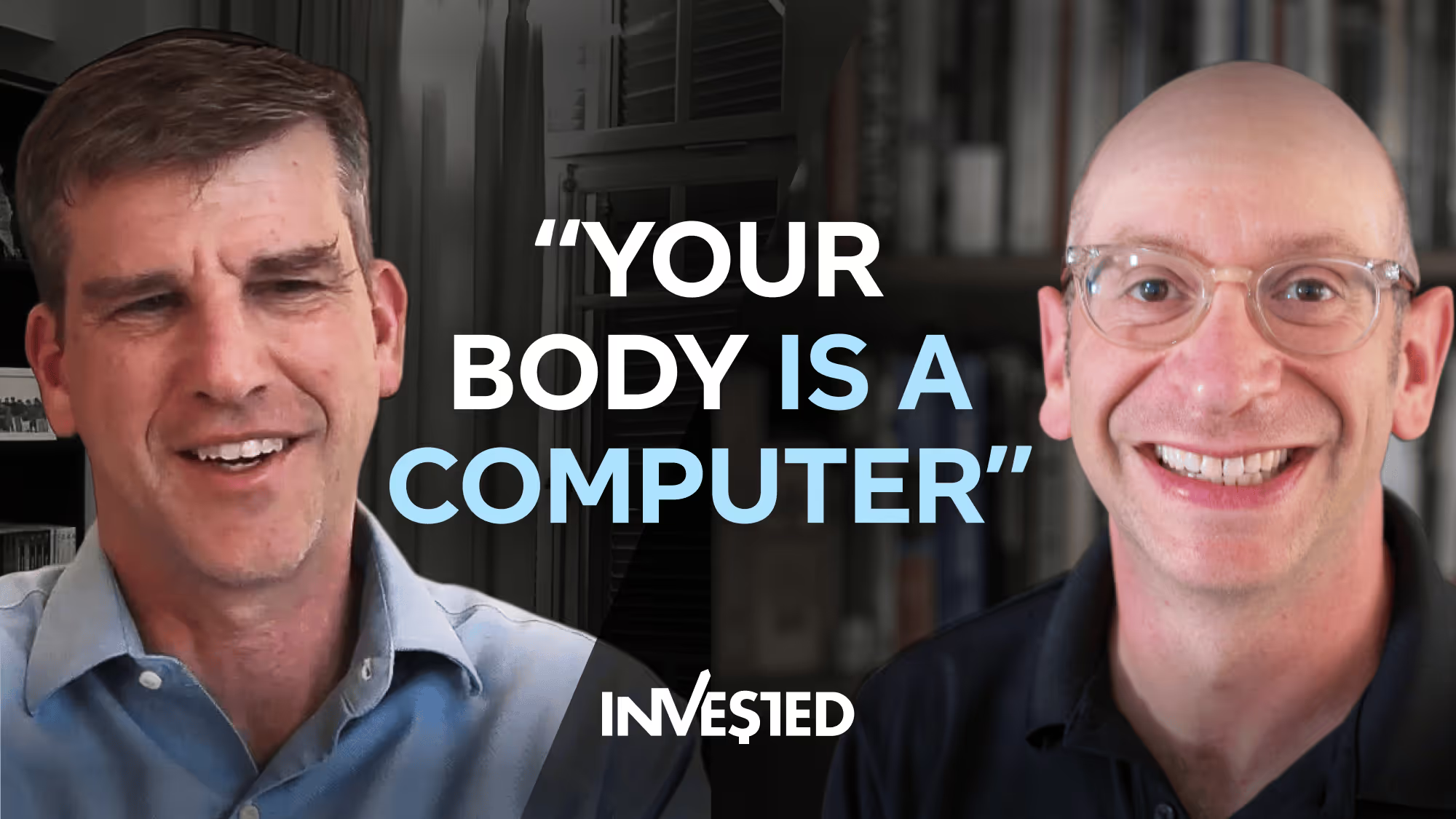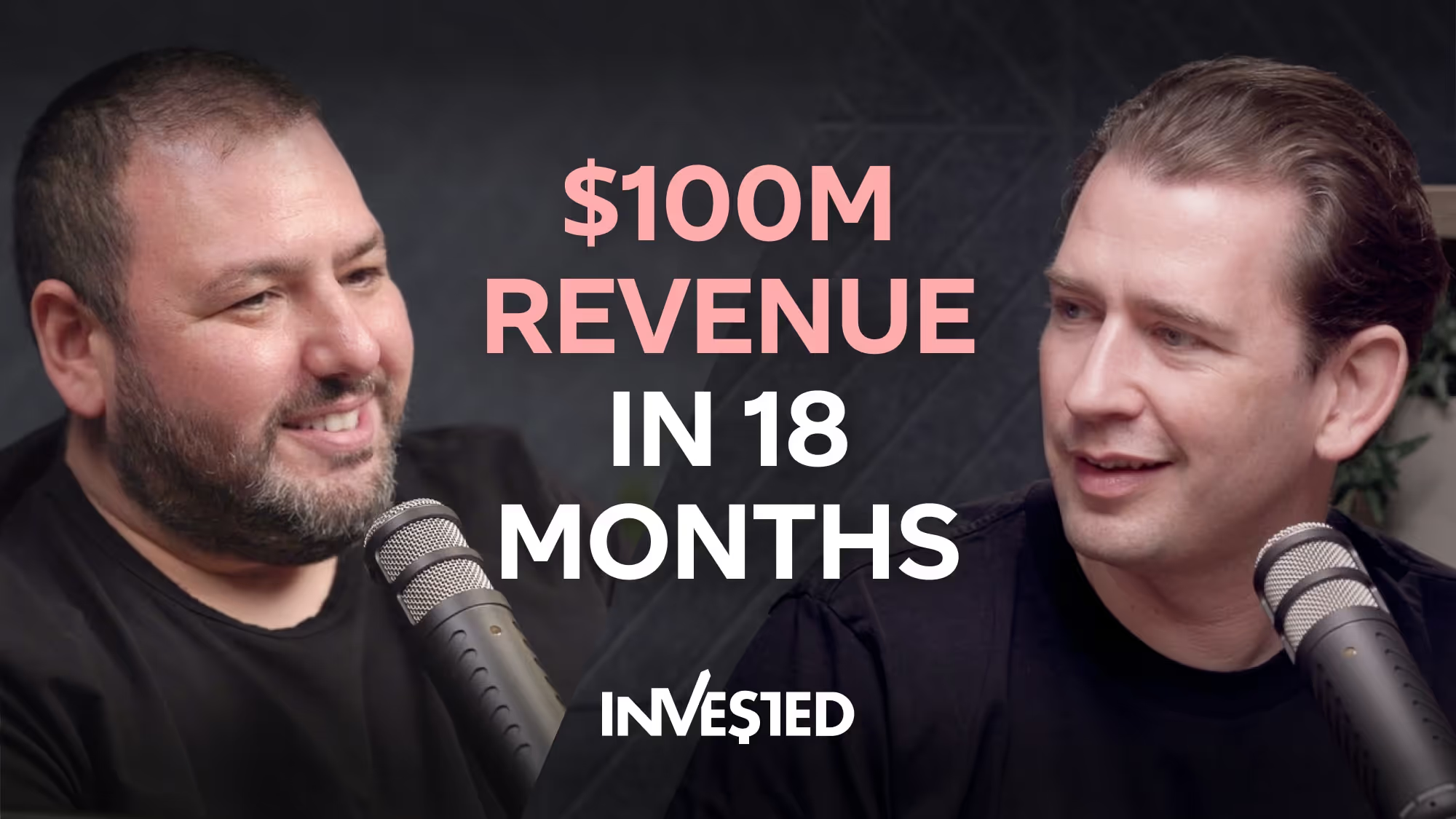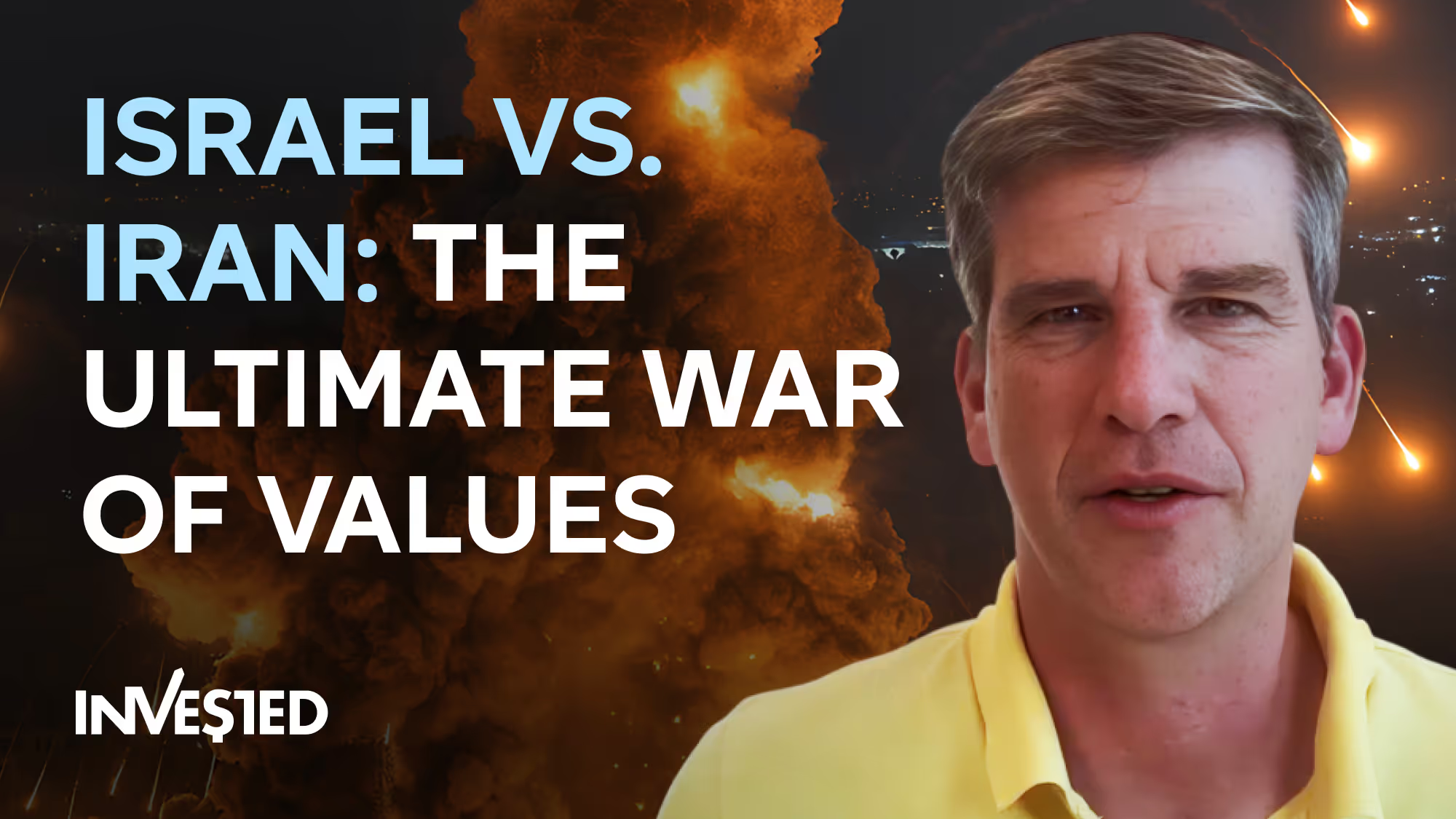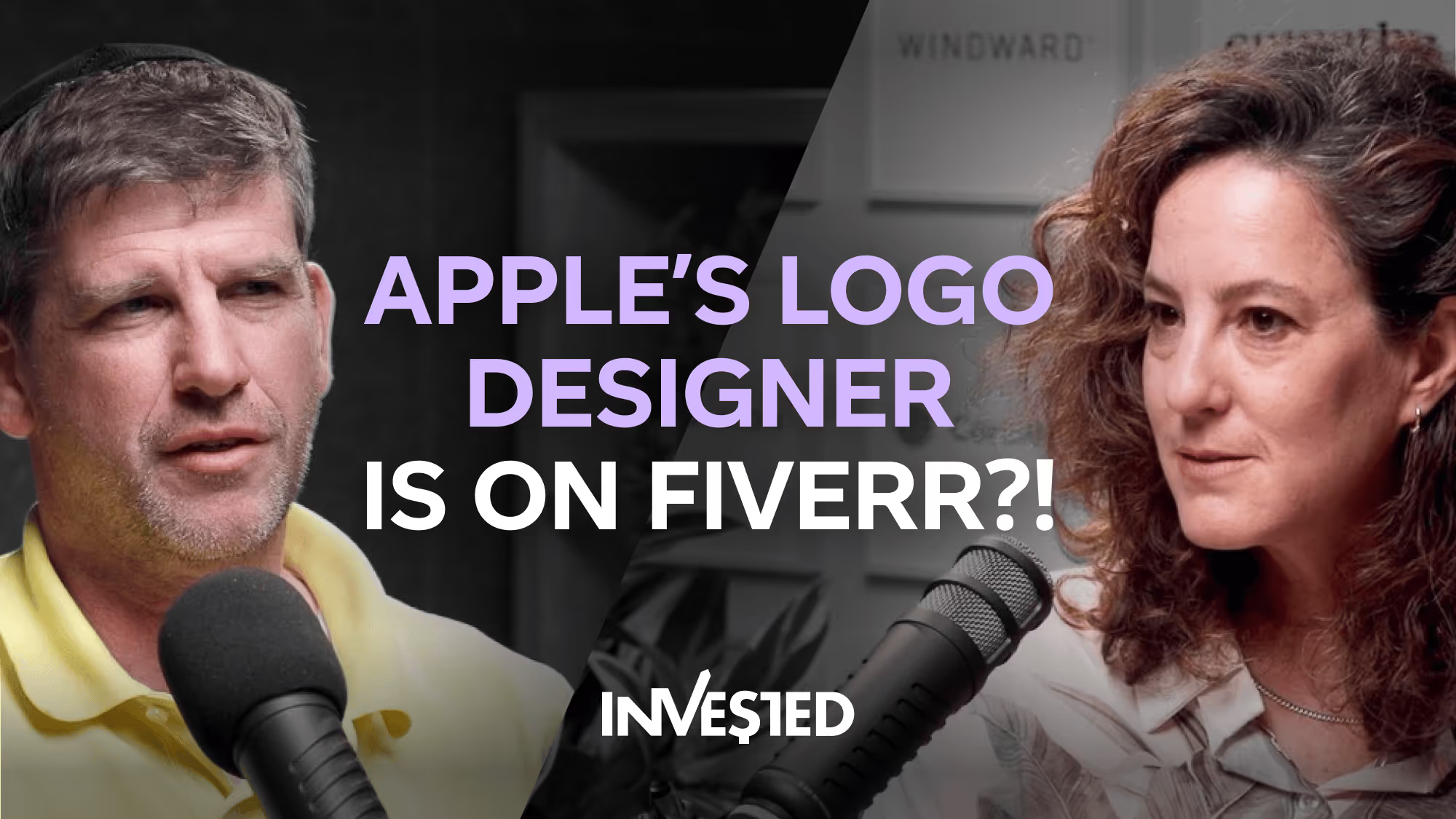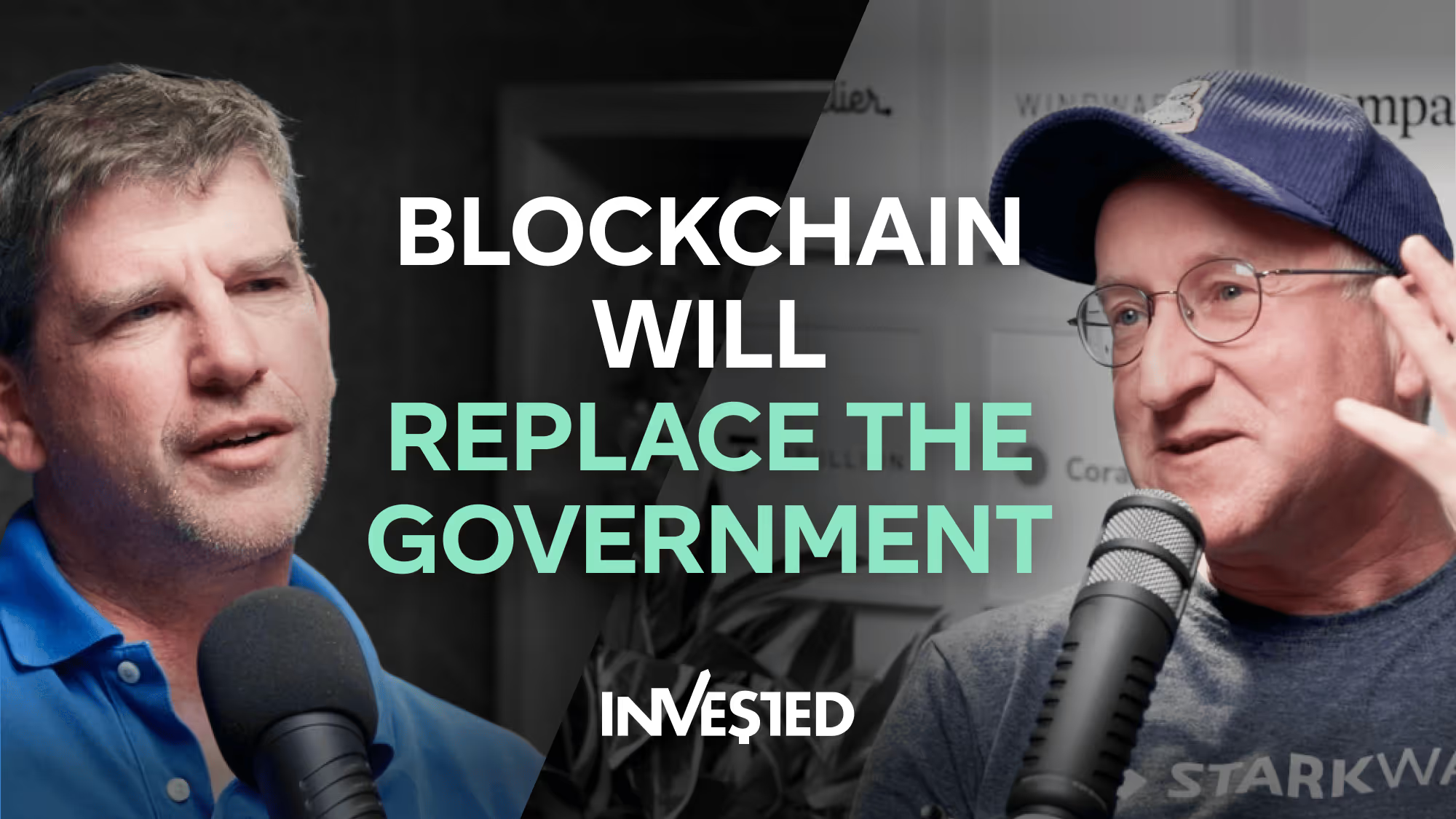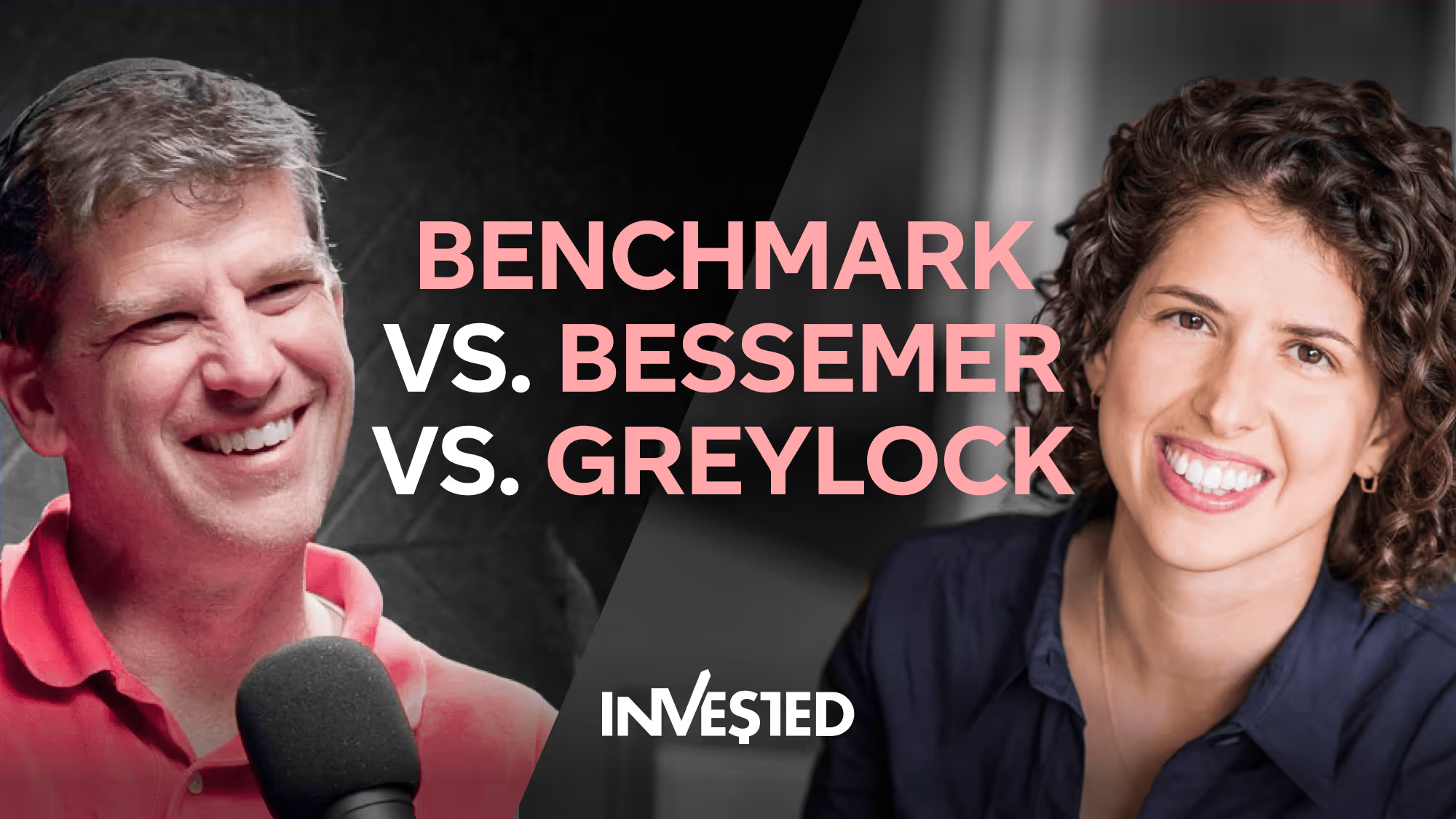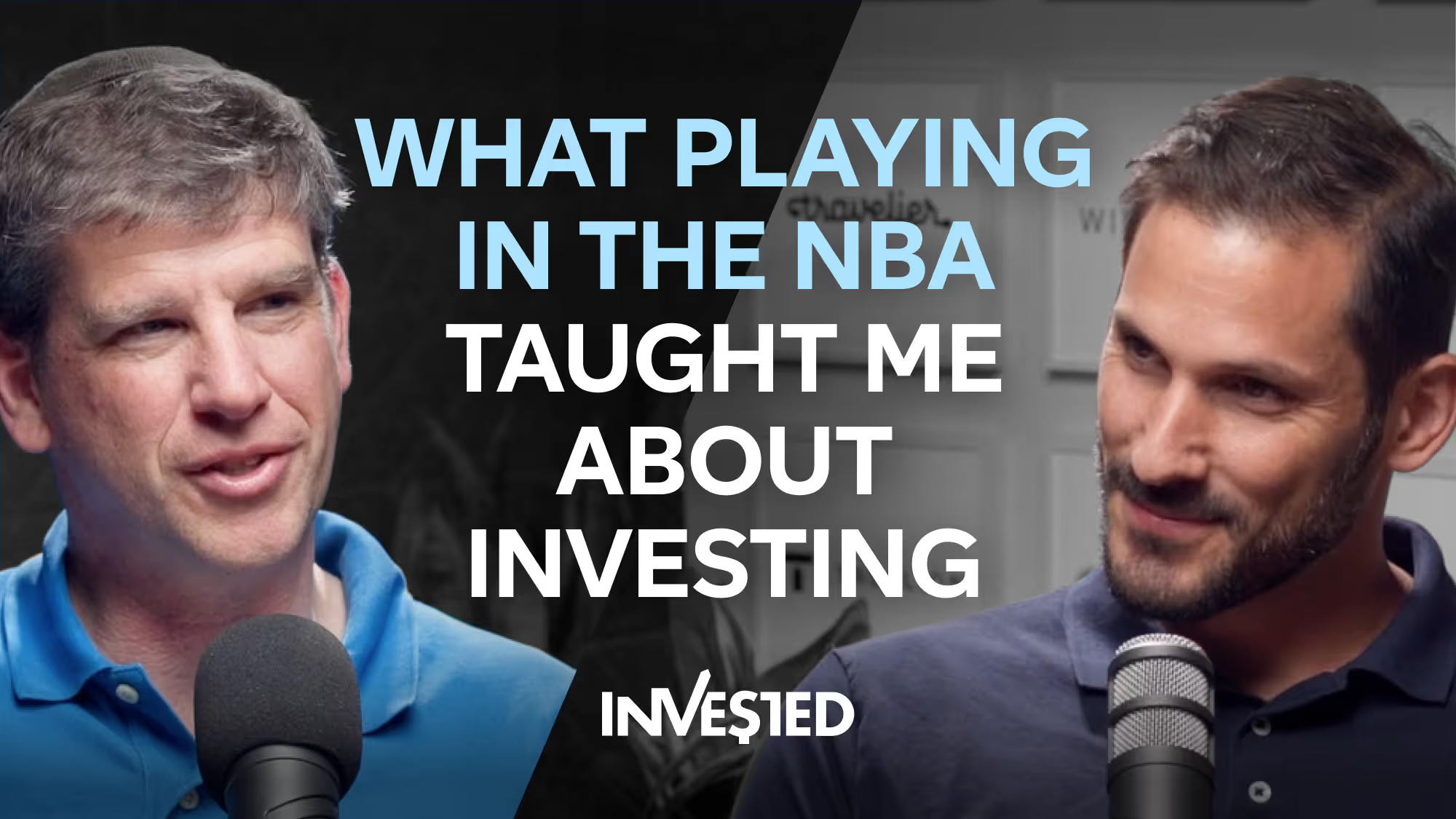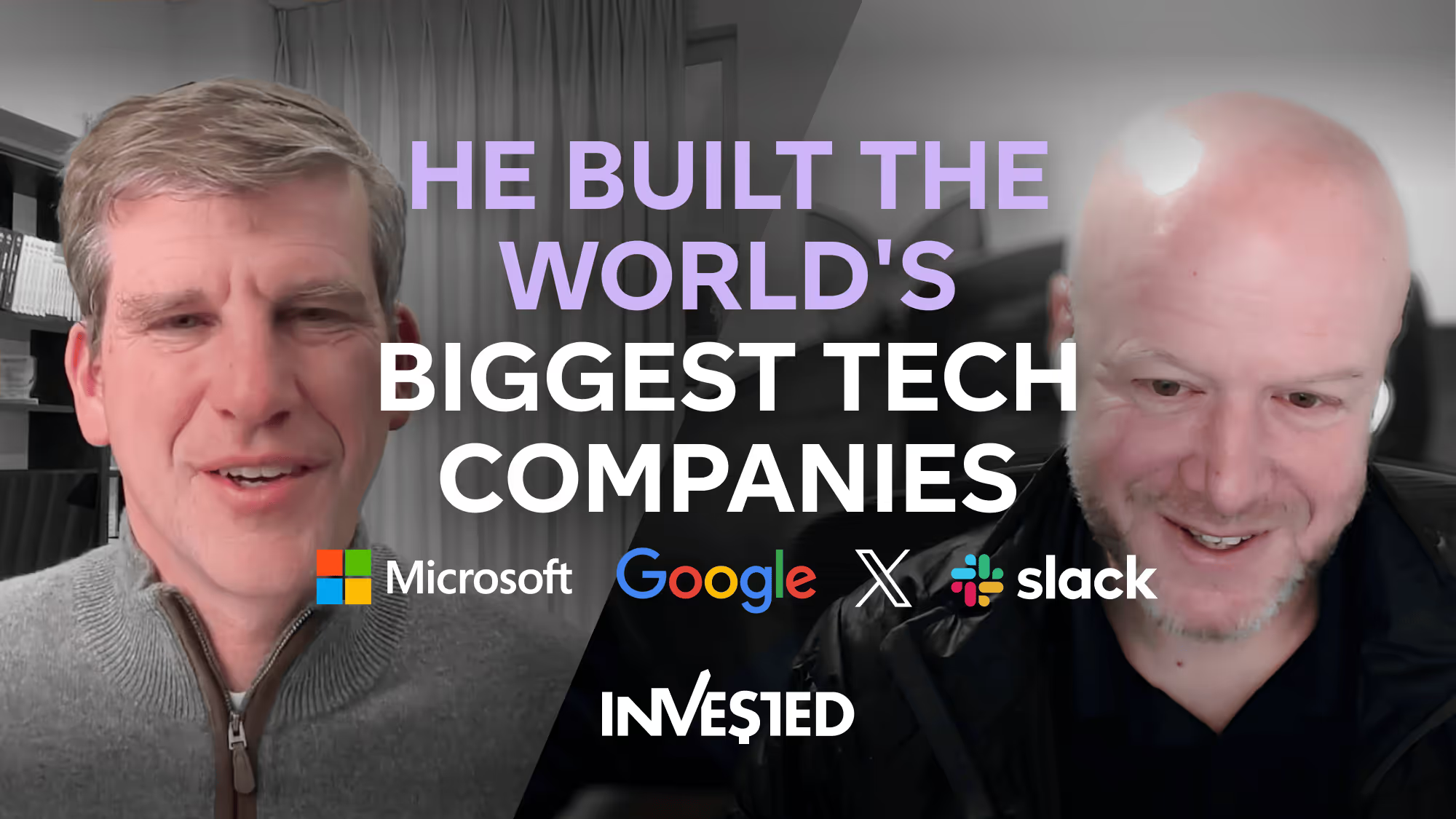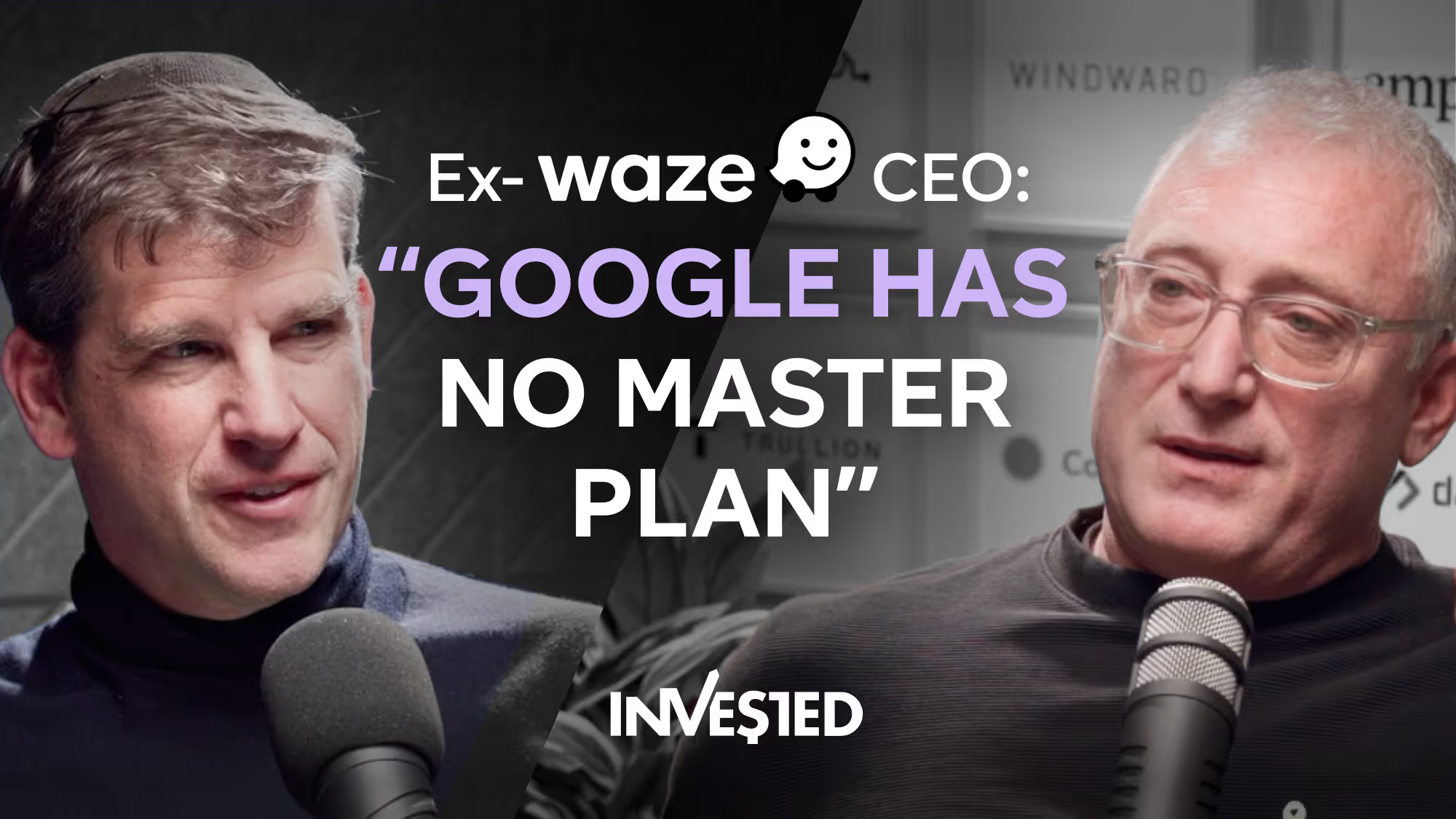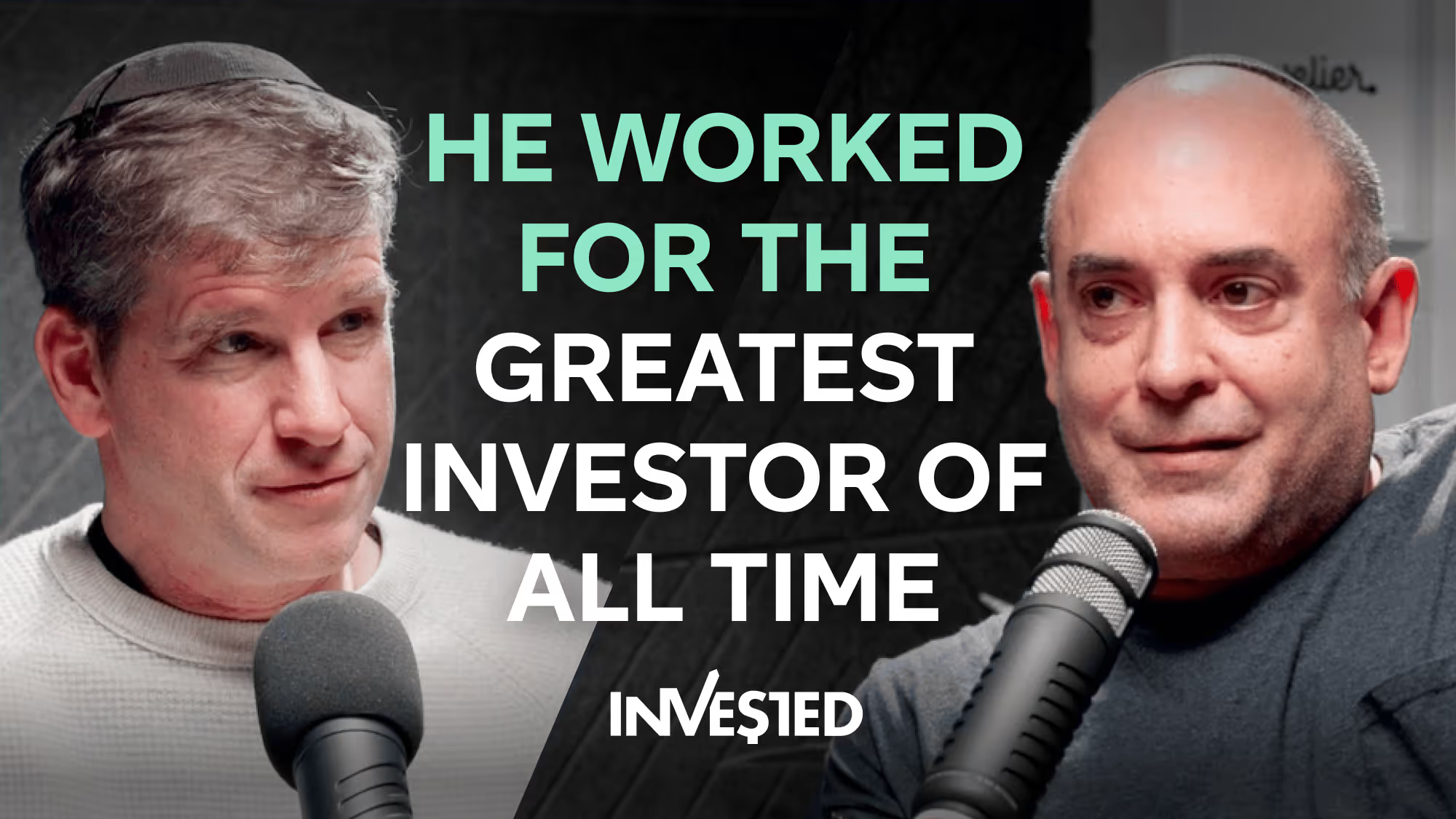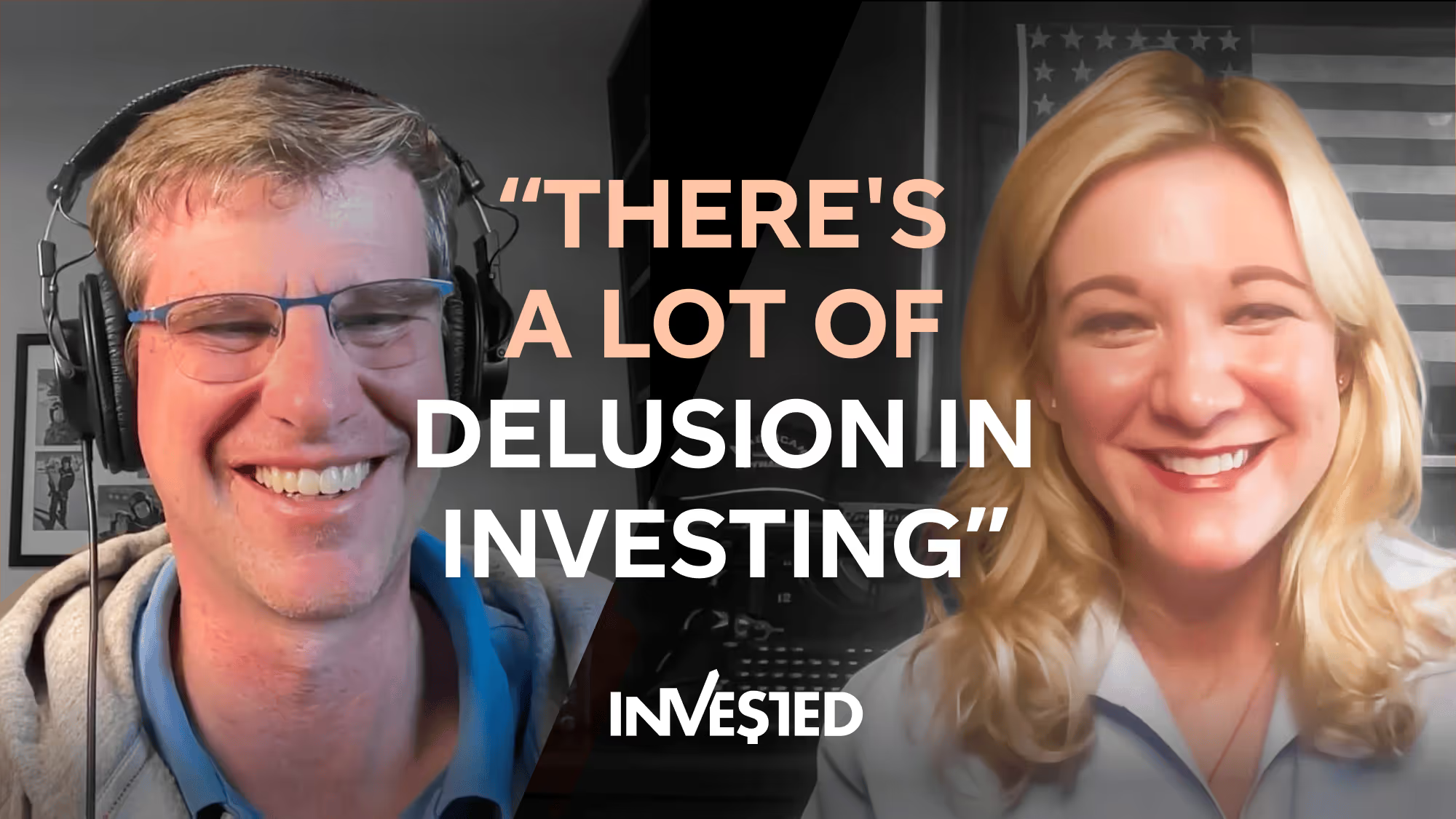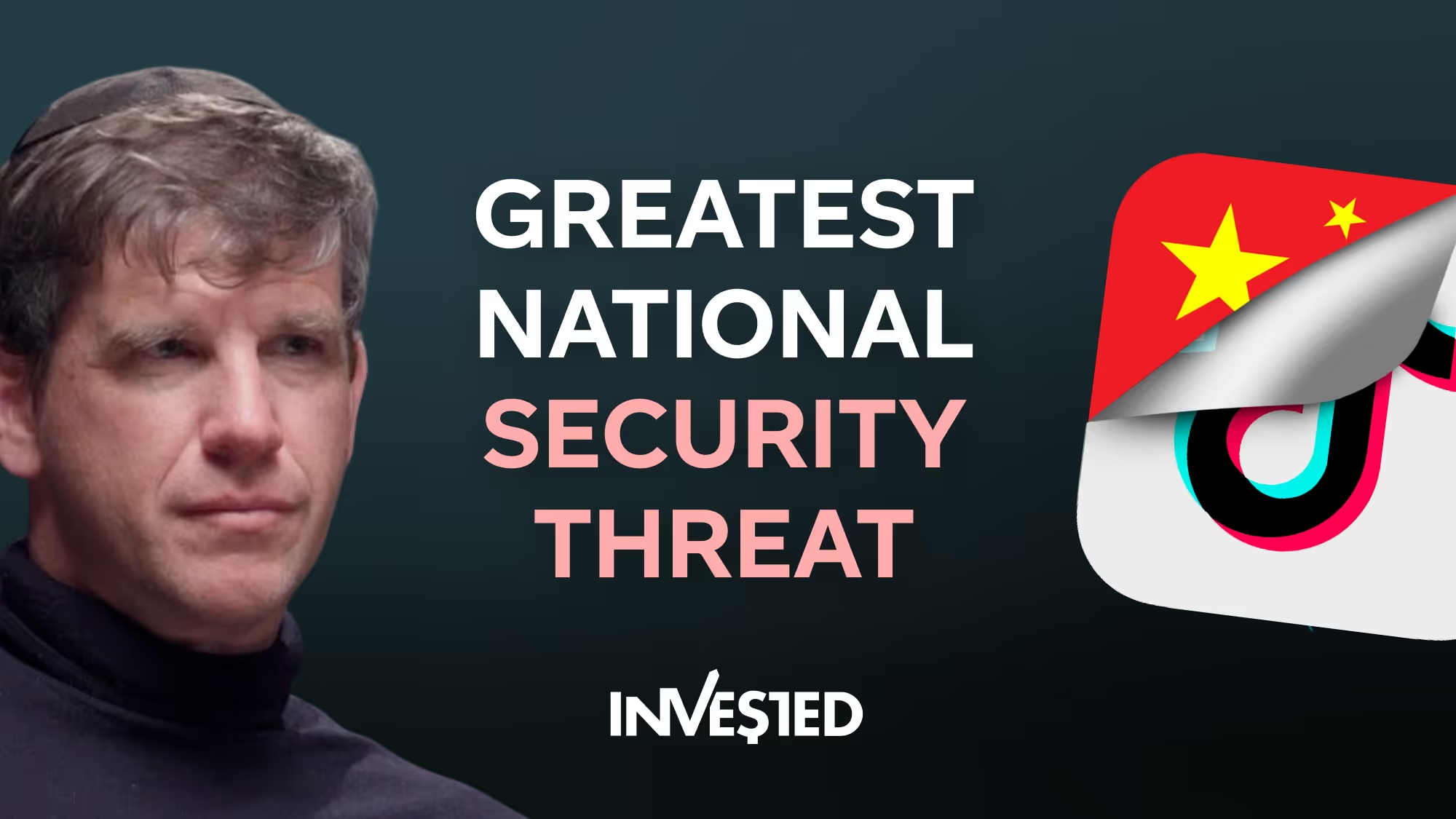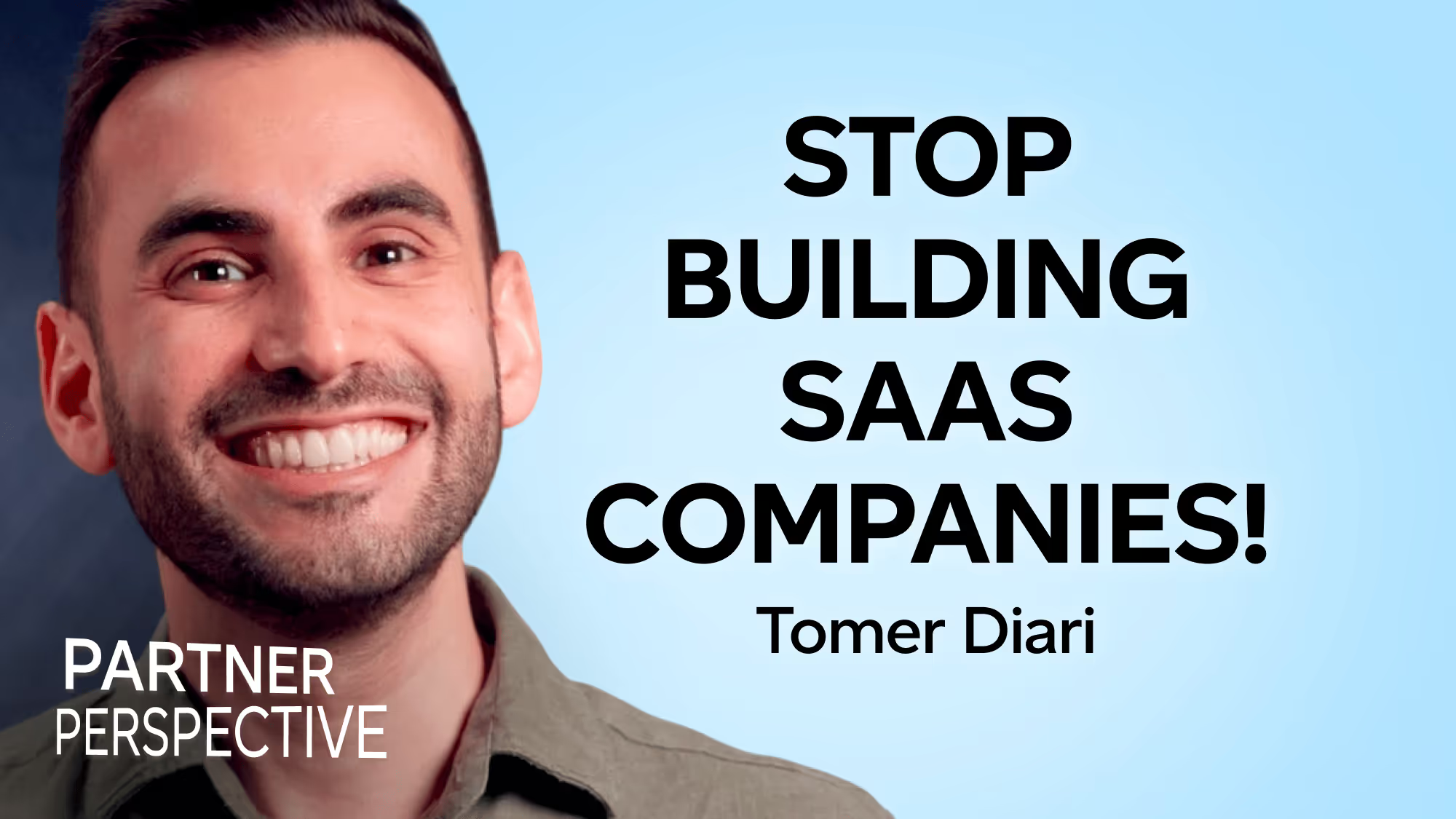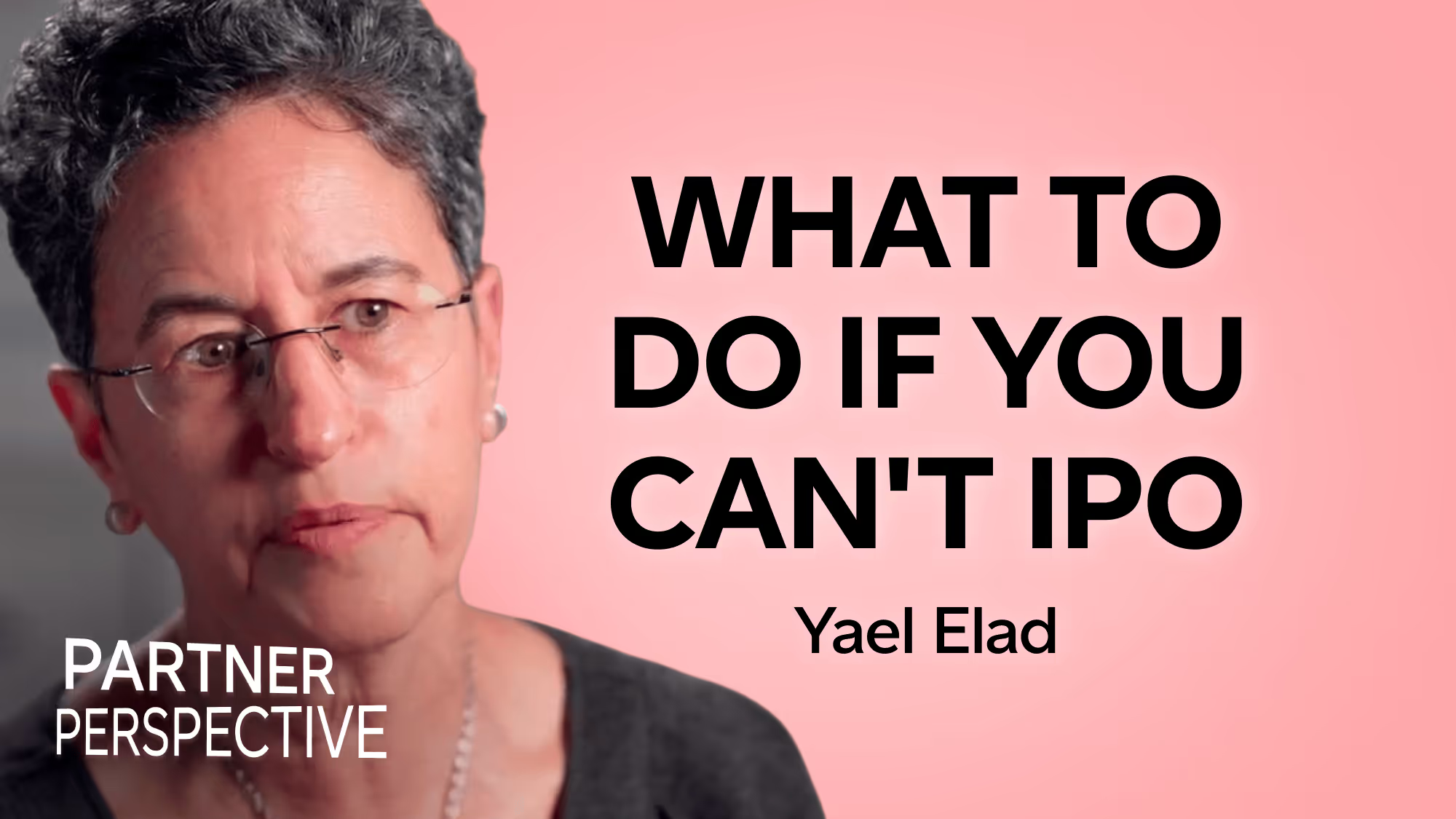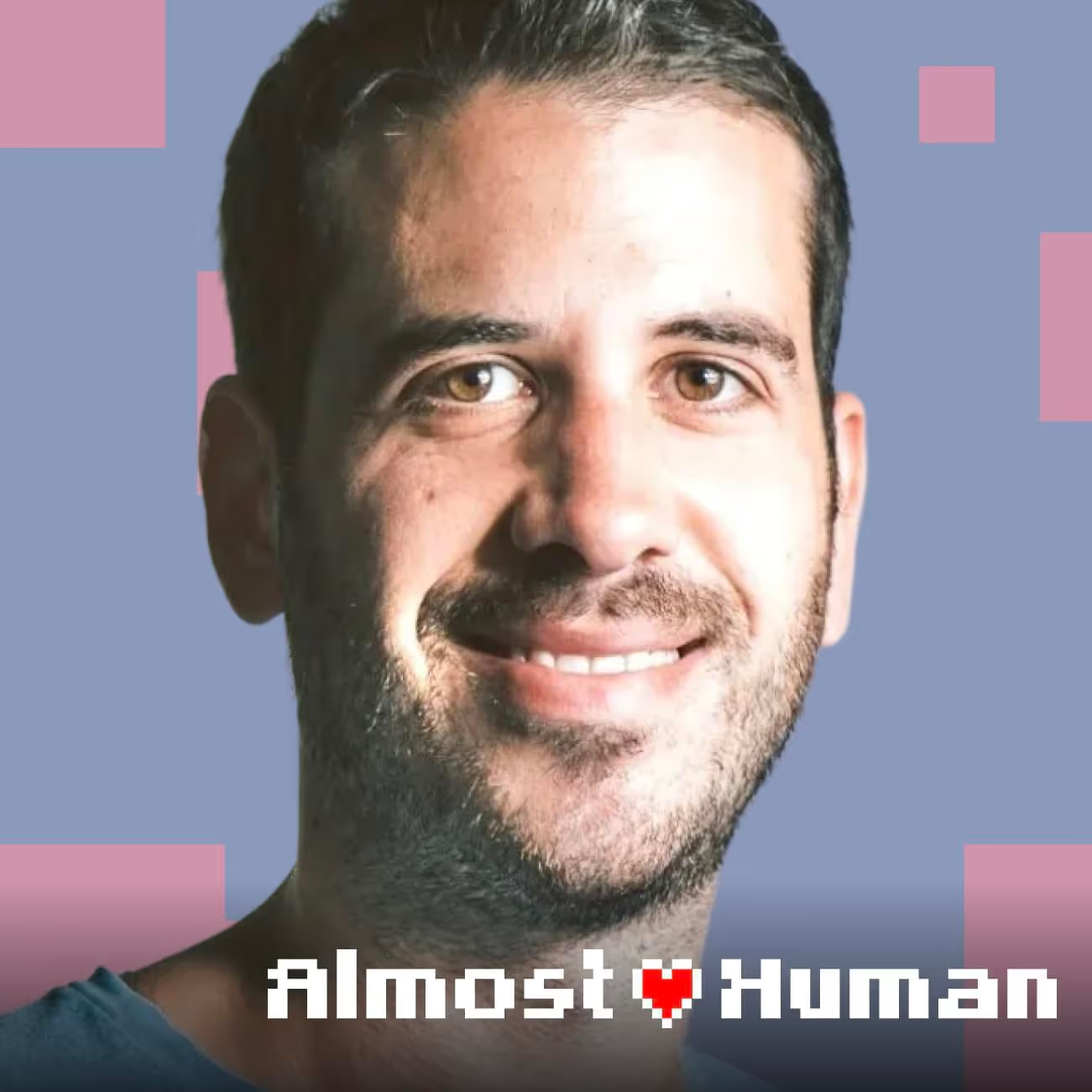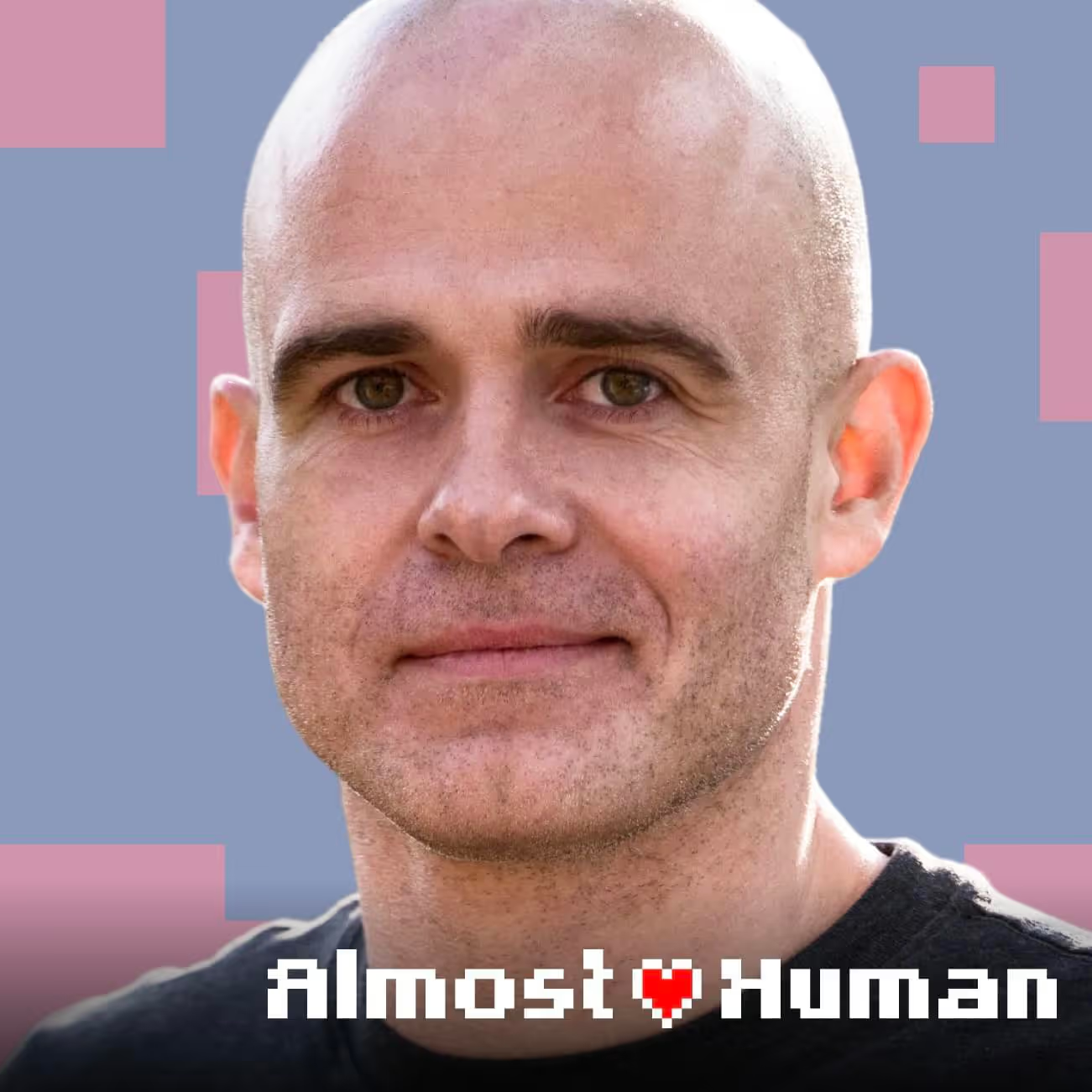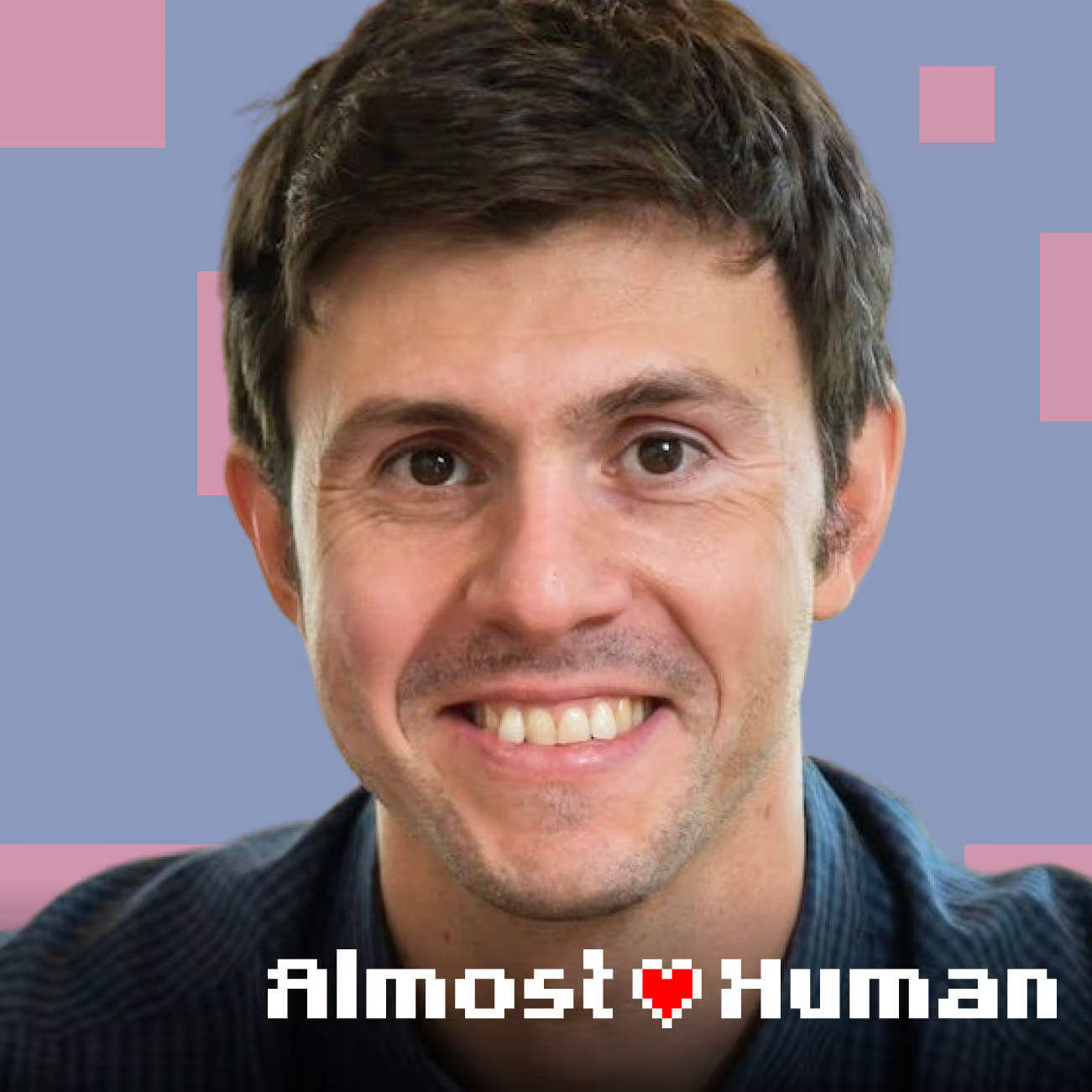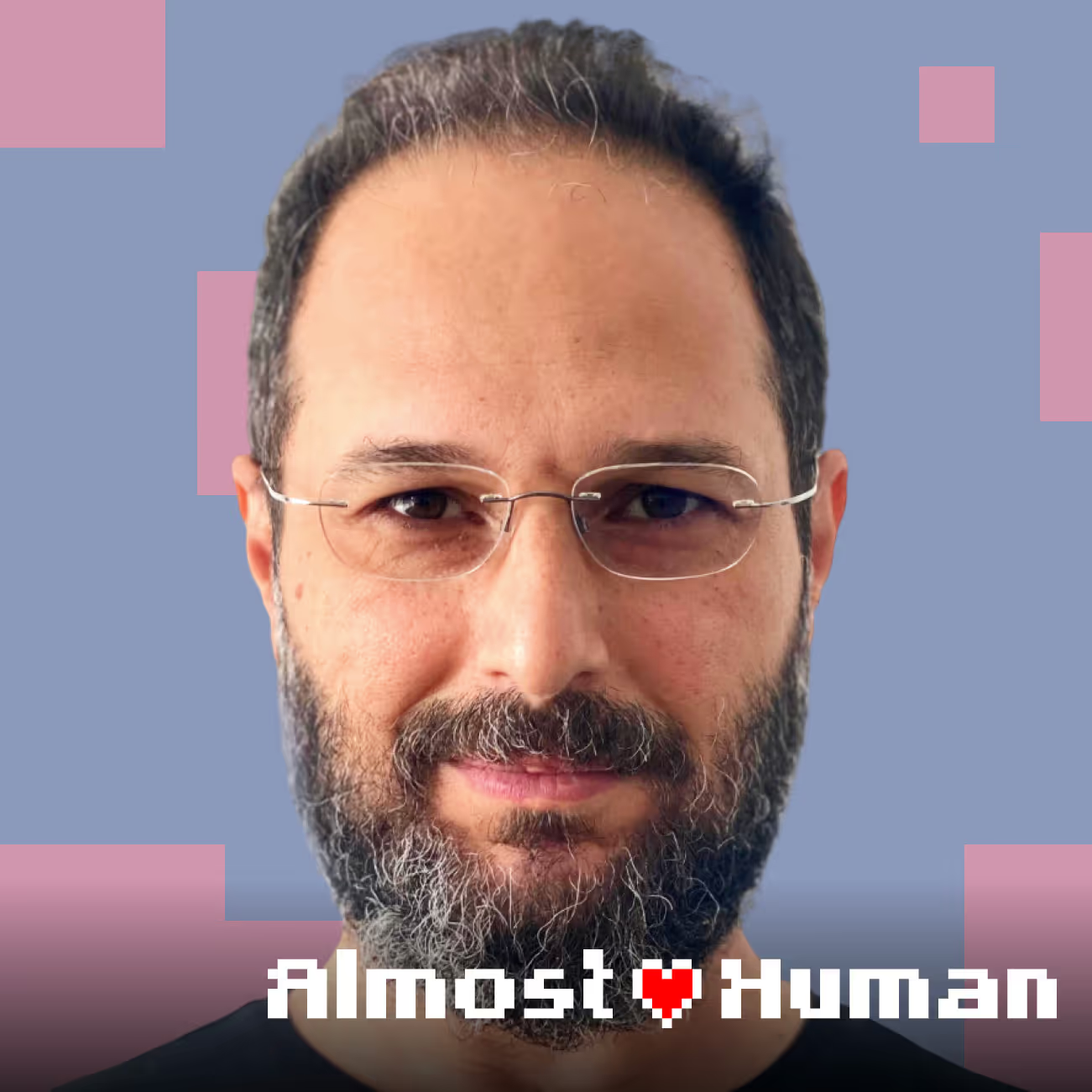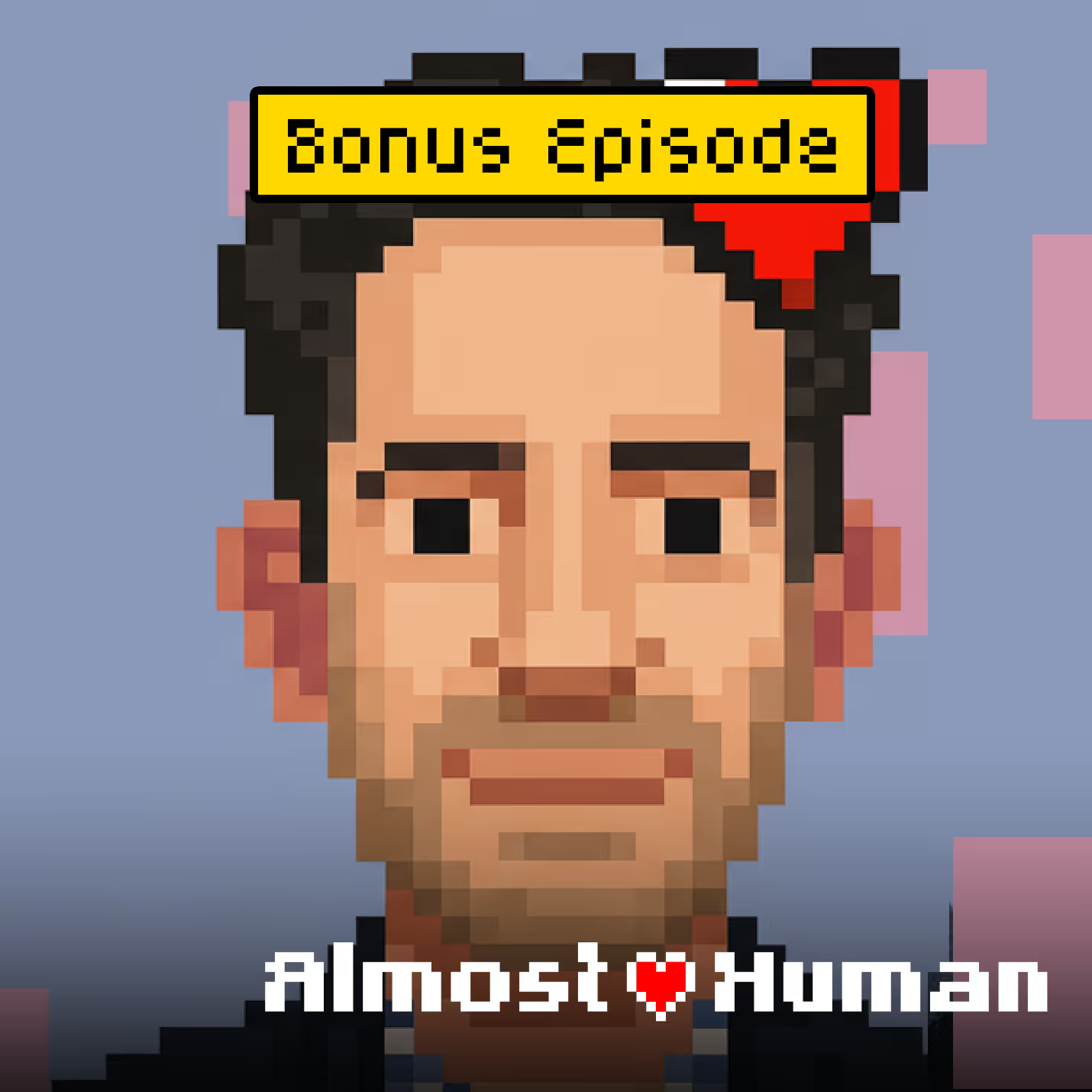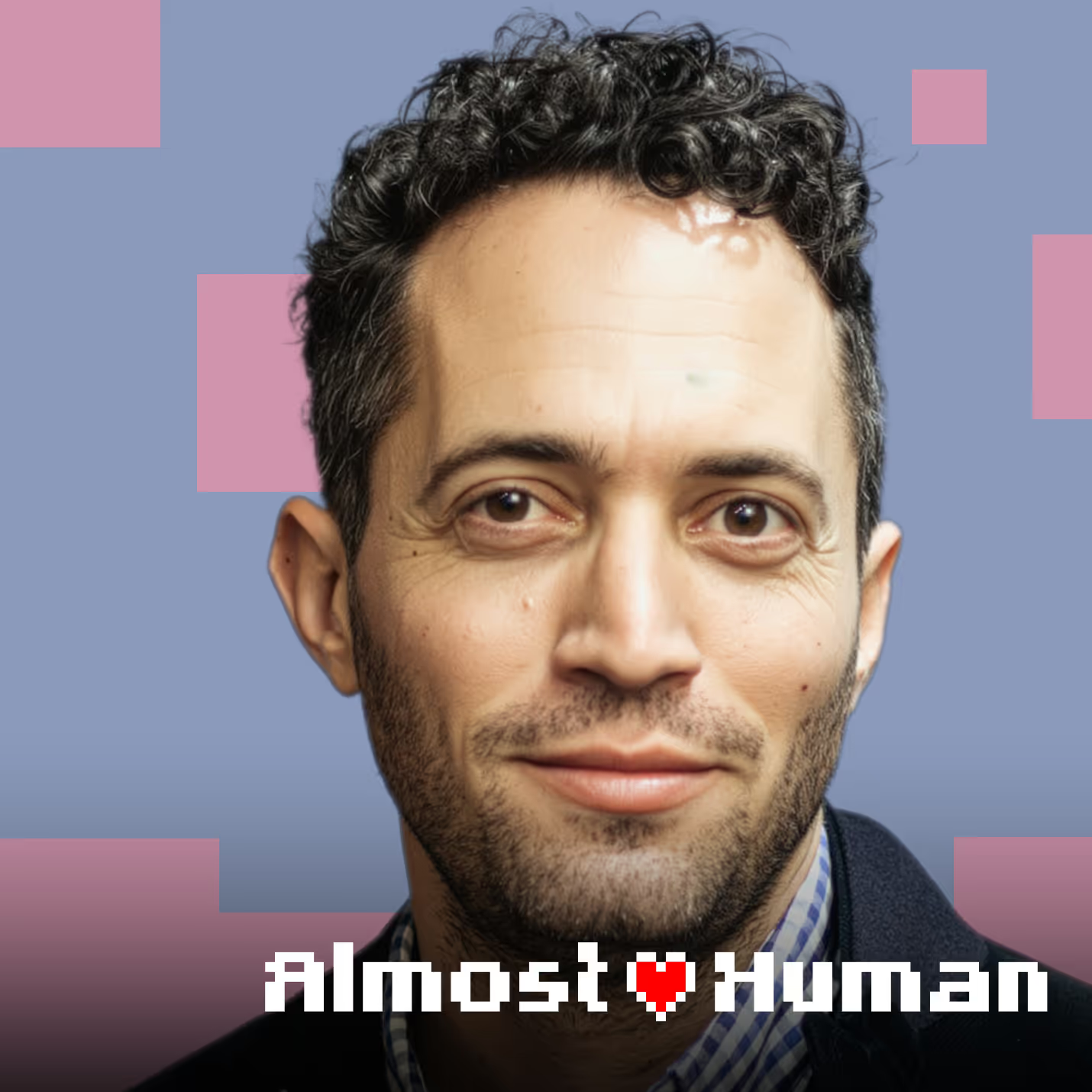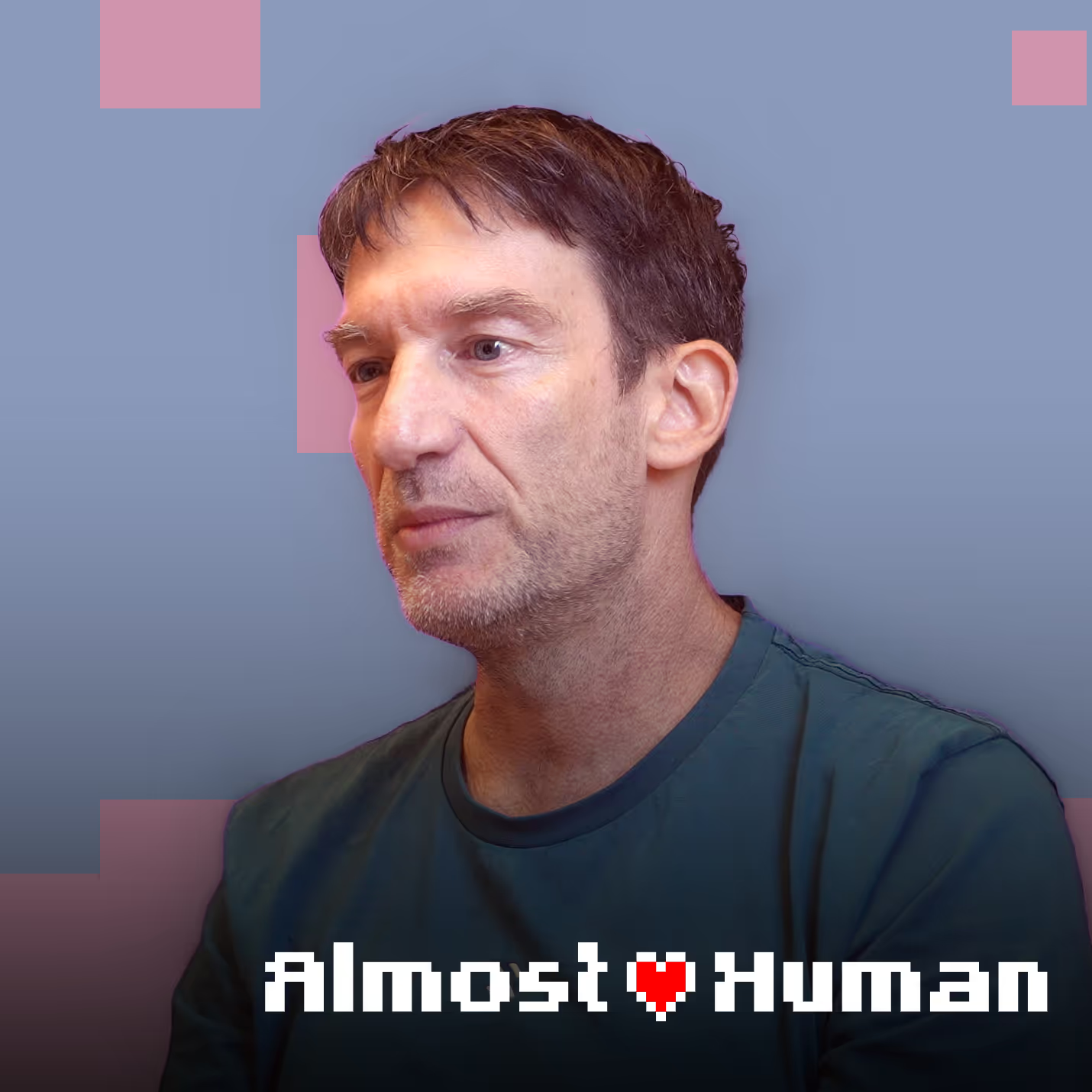Eyal Waldman



How can values create value? On this podcast, Michael Eisenberg talks with business leaders and venture capitalists to explore the values and purpose behind their businesses, the impact technology can have on humanity, and the humanity behind digitization.
Eyal Waldman



How can values create value? On this podcast, Michael Eisenberg talks with business leaders and venture capitalists to explore the values and purpose behind their businesses, the impact technology can have on humanity, and the humanity behind digitization.
Eyal Waldman
Eyal Waldman

Eyal Waldman
Eyal Waldman
- [00:00] Intro
- [03:20] Building Mellanox
- [07:36] Selling to NVIDIA
- [08:40] OpenAI and InfiniBand
- [12:05] InfiniBand vs. Ethernet
- [14:23] Self-Doubt
- [16:15] Future of AI
- [23:50] Making a Difference
- [27:00] Employing Palestinians and Israelis Together
- [30:30] Conflicting Values
- [31:39] Making Tough Decisions
- [37:35] Peace Through Business
- [40:48] Business With China
- [45:53] Business as a Bridge
- [49:44] Fear of Failure
- [52:30] Motivation and Vulnerability
- [55:14] Mellanox Today
On the 10th episode of Invested, Michael hosts Eyal Waldman, the chairman of Waldo Holdings and Co-founder of Mellanox.
Waldo Holdings is a family office that focuses on diversified investments in private and public companies, various funds, real estate and other financial platforms and vehicles.
Mr. Waldman has been the Co-founder, President, CEO and Board member of Mellanox Technologies since March 1999, a semiconductor company which went public on Nasdaq in 2007 and was acquired by NVIDIA on April 2020 for more than $7B.
Between March 1999 until June 2013, Mr. Waldman served as Mellanox’s chairman of the board.
From March 1993 to February 1999, Mr. Waldman served as Vice President of Engineering and was a Co-founder of Galileo Technology, Ltd., a semiconductor company, which went public on Nasdaq in 1997 and was acquired by Marvell Technology Group, Ltd. in January 2001 for $2.7B.
From August 1989 to March 1993, Mr. Waldman held several design, management, and architecture related positions at Intel Corporation, a manufacturer of computer, networking, and communications products, and was awarded with the “IAA Intel achievement award” and the “Employee of the year” award.
Mr. Waldman serves on the board of directors of several private and public companies.
Mr. Waldman holds a Bachelor of Science degree in Computer Engineering and a Master of Science degree in Electrical Engineering from the Technion - Israel Institute of Technology.
In June 2016, Mr. Waldman was awarded an Honorary Doctorate by the Technion.
You can find Eyal Waldman on https://www.linkedin.com/in/eyal-waldman-968788/
Please enjoy and rate this episode 5 stars wherever you stream your podcasts!
Michael Eisenberg
The theme that kind of keeps coming up is, let's do business - and that will solve a lot of problems. Do you really believe that?
Eyal Waldman
So I think business can be a bridge, in many ways, to show that we can work together. Once you have the same incentive - to make money - it's a simple incentive, to make money. And if you can collaborate from both sides - let's say from the Saudis and Israelis, for the Palestinians and Israelis to make money together - then we can now start and expand this to cultural things. Let's do a concert. You know, when we started working with the Palestinians, there was a lot of fear between the sides. The Palestinians were afraid of the Israelis, the Israelis were afraid of the Palestinians. They started working together. There was positive friction, about the kids, about jokes, about sports, about those things. When this positive friction happened, it took the fear level down.
Michael Eisenberg
Eyal Waldman, it is great to have you here, for the 10th and final episode of this season of Invested. Thank you for coming.
Eyal Waldman
Thank you very much for inviting me, and it's great to be the last.
Michael Eisenberg
Can I ask you - one of the things we ask our guests to introduce themselves with is, tell us your core value.
Eyal Waldman
My core value?
Michael Eisenberg
Yeah.
Eyal Waldman
Making a difference.
Michael Eisenberg
Making a difference. So with that, I'll tell everyone that Eyal Waldman is the Chairman now of Waldo Holdings. He served as Co-founder, President, CEO, and Member of the Board of Directors of Mellanox technologies from 1999 until 2020 - 21 years - when the company was then acquired by NVIDIA, now a very famous company, for about $7 billion, which was probably the best acquisition of their lives. Is that fair?
Eyal Waldman
Yeah, it's very fair.
Michael Eisenberg
Yeah. Eyal co-founded and served as Vice President of Engineering of Galileo Technology, a semiconductor company. I don't know if Eyal knows this, but I was involved in raising some of the first money for Galileo, from Weiss, Peck & Greer, then a venture capital fund in the '90s. The company that is Galileo went public in 1997, and was acquired by Marvell Technology Group in January 2001, for $2.7 billion. Eyal has been a Member of the Board of Directors of several private companies and public companies. Currently, he is a board member of Check Point Software Technologies, as well as Pliops. Eyal, it's such a pleasure to have you on the show with us. And so, let's get started. Thank you very much.
Eyal Waldman
I'm a previous board member of Check Point.
Michael Eisenberg
Oh, previous.
Eyal Waldman
Yes.
Michael Eisenberg
Now emeritus.
Eyal Waldman
Yes.
Michael Eisenberg
So I actually don't know the answer to this question, but I was going to ask - how do we know each other? I don't remember actually.
Eyal Waldman
I think we met [at] a number of opportunities. They were both social and professional, I think, on some investments. And then you had Oona working for you.
Michael Eisenberg
That's right.
Eyal Waldman
Oona was a friend from San Francisco that relocated here. So it was both connections.
Michael Eisenberg
Amazing. Oona was our first Head of Marketing and Comms at Aleph. And what are you doing now with your time?
Eyal Waldman
It's divided to two things. First is the family estate. So it's our family office, where we invest in a very diversified set of tools and vehicles around the world. And the second one is activities about the country or geopolitical things, trying to make Israel a better place to live in.
Michael Eisenberg
So you IPO'd way back, I think it was in 2007.
Eyal Waldman
We had two IPOs. In Galileo, it was '97. And Mellanox, 2007.
Michael Eisenberg
Then you sold the business to NVIDIA 13 years later, or so. And then you left NVIDIA, six months after that. What made you leave?
Eyal Waldman
You know, I decided that I want to make sure that the transition, or the integration, goes as smooth as it can, and then said, "Okay, I've been 21 years, the CEO of this company," and I felt like it's about time to retire. Didn't want to be number two. So I said, "Okay, Jensen, here's the team, we have great accomplishments of what we'd said we're going to deliver," and decided, let's go into something else.
Michael Eisenberg
Was it hard for you to leave?
Eyal Waldman
You know, I was already prepared for this for more than a year and a half, because between [when] we signed the deal until it was closed, it was a year and a half. So I was kind of ready for that. Yeah, emotionally, it's always hard to do such a big change. But I think I was prepared for it.
Michael Eisenberg
Tell us about Mellanox. What was Mellanox? And why was it so important to NVIDIA, and also, hence, to the artificial intelligence moment we're going through right now?
Eyal Waldman
You know, not just the AI world. I mean, Mellanox is important to nearly everything you do today. If you think of where we started, we started focusing on the new standard of interconnect of servers, servers to server, servers to storage. And there were about nine companies running with us, parallel to us, to try and build this standard. I think we were the best, and we kind of killed everybody that was trying to do it, whether it was Intel, IBM, more startups and so on. So what we did is the best, most efficient interconnect. And if you look today, first at the high-performance computing market, I think there's more than 66% (maybe even more than 70% today), of the supercomputers today are built with the Mellanox interconnect.
Michael Eisenberg
Wow.
Eyal Waldman
And that enables you to do research, to do defense in all the DOD, DOE labs -
Michael Eisenberg
DOD: Department of Defense, DOE: Department of Energy, Lawrence Livermore Labs -
Eyal Waldman
Los Alamos, Sandia Labs -
Michael Eisenberg
Energy prediction, weather prediction, war simulations, and a million other things.
Eyal Waldman
And more things that we don't talk about. And we were also part of the agencies. So we've enabled people to do things they could not do before in the supercomputer world. Then we've seen that the same guys' need - that they're trying to build the hyperscale applications, whether it's Facebook, Instagram, Microsoft, Apple, Google, and so on - need the same infrastructure, a supercomputer infrastructure for their applications. So we started focusing both on supercomputers, but then high-performance computing, but then also on hyperscale data centers. So we started winning them one by one. And also not just in the US, also in China, Alibaba, Baidu, Tencent, JD.com, ByteDance. Nearly all of them, or most of them, the vast majority, are using us. So we've been able to build the most efficient data centers now. And after that came artificial intelligence, machine learning, all that. So once you've been very good at supercomputing, high-performance computing, we took this to data center, hyperscale, hyper applications that wanted to serve billions, or hundreds of millions of users, and then to AI, machine learning, and so on. So what we enabled is really to utilize the compute and the storage power, that's for the benefit of many applications, many things that people can now do much better.
Michael Eisenberg
At high performance and high speeds.
Eyal Waldman
Yeah, I mean, it's to do with compute, with storage. So to build the fastest supercomputers, the scalability, and accessibility, and, you know, computation, has to do with how fast you move data, and shortest latency. That is a very good correlative to the performance you get. So we've been able to get to the lowest latency with the highest bandwidth. And on the way, we're doing, now, manipulation of the data. So we're processing data, the DPU, the BlueField - which now is getting more and more in the NVIDIA platforms - it's not just moving the data, we're also processing the data while we move it through the wires.
Michael Eisenberg
And why didn't NVIDIA buy the company?
Eyal Waldman
Well, I think it's, there's amazing synergy. I mean, from -
Michael Eisenberg
I know why, but I just want to explain to the listeners.
Eyal Waldman
So from earlier days, we actually worked with NVIDIA. NVIDIA has built graphic processing units. Then, people found that the floating-point performance of a GPU is very much useful for supercomputing. For calculating of, you know, mathematical or science calculations, physics and so on, you can use the floating-point processor much better than a regular CPU. So we started seeing GPUs and high-performance computing in the supercomputing arena. What now you have is a very fast processor. You need to provide a lot of data very fast and with low latency to that processor, and we opened this bottleneck, so that you can really utilize the processing power of the GPU. Without us, imagine you have a very big engine, but the pipe feeding it is very small. So your bottleneck is in the pipe. What we've done is matched the performance of the GPU to the pipe that's feeding it, the data we can bring in and out, and that's why there's great synergy between NVIDIA and Mellanox from day one.
Michael Eisenberg
So before we started talking, you mentioned something I didn't know, which was that you've been powering OpenAI, or ChatGPT, from day one. Can you talk some more about that?
Eyal Waldman
You know, OpenAI came, and they wanted to do very fast machine learning infrastructure. And we told them the best thing is to use InfiniBand. And its most advanced -
Michael Eisenberg
InfiniBand is the standard on which Mellanox leads.
Eyal Waldman
Today, there's mainly two interconnects. It's Ethernet, or InfiniBand. And we're seeing today, the vast majority of AI platforms have been using InfiniBand. And InfiniBand is growing very fast, they grew very fast to billions of dollars every year. So we told them, "Look, if you want to do AI, the best interconnect for you is InfiniBand." And we started working for them. Obviously in the initial stages, there's always things and bugs you need to fix in order to make it work. But we told [them], "This is the only way, the best way, you can really get performance," and OpenAI were smart enough to continue using InfiniBand and were successful - I think part of it because of utilizing InfiniBand.
Michael Eisenberg
So the whole, kind of, AI revolution that's blown up in the public consciousness in the last six months started six years ago, with OpenAI, ChatGPT, Sam Altman, and Eyal Waldman's company in Israel, Mellanox?
Eyal Waldman
I think without us, it would have been very difficult, if not impossible, to get to the same results utilizing the infrastructure, to get such results of intelligence. So the more data you can move around, the fastest you can move data, the more intelligent the machine is.
Michael Eisenberg
Although I think this is, not to get too geeky for a second, but this is an important thing that people, many people don't understand. A lot of the limitation on the progress of AI is hardware related, and not software related, right. And here comes Mellanox, I mean, they've been around for a while, and unlocks a hardware problem that enables the data to move much faster, higher scale, and be processed, and that unlocks AI.
Eyal Waldman
Yes. It enables AI to actually achieve much better results. It has to do with the amount of data you can look at in a period of time. So if you can look at more data, you become smarter. It's a very simple equation. So what we enable is the machines to become smarter, to make better decisions, to build better, better and faster neural networks or bigger neural networks. And this is why you become more intelligent.
Michael Eisenberg
What do you think is, by the way, the next hardware barrier for the progression of artificial intelligence?
Eyal Waldman
You know, today NVIDIA is doing, or Mellanox is doing 800 gigabits per second, almost a terabit per second on one cable.
Michael Eisenberg
Wow.
Eyal Waldman
I think this is going to grow. I think the computation of data with the amounts of data, the storage, the manipulation of data [is] on the way, and this is also something that NVIDIA is doing with Mellanox DPU. So we are already working to unlock the next data-processing platforms of the future with, I think, over one terabit per second and more offload engines. So instead of the GPU doing all of the work, we're going to do some, or the CPU, we're going to do some of the work in the data processing, in the DPU, in the BlueField, so that there's more data processing being done on the way, and the platforms can get smarter and faster, and better and better.
Michael Eisenberg
If my memory serves me correctly, when Mellanox got started, there was a big question about InfiniBand technology, in general. I think if, if my memory serves correctly, it was right after the whole WiFi/WiMax issue in the wireless wars, where people said stay on 82.11 to make it work, and the same thing at the time - was InfiniBand this just, kind of esoteric standard, that wasn't going to make it even though a few people were working on it? And, you know, maybe it'd be something else like, like Ethernet? Is my memory correct about that?
Eyal Waldman
I don't know about the WiFi/WiMax. But InfiniBand was definitely a standard that a lot of people did not adopt. A lot of people were shy to use it. And they said it's like a temporal thing until Ethernet that catches up. And everybody was waiting for Ethernet to catch up and get close to InfiniBand. What we've done, actually, we took our InfiniBand engines and put them on Layer 2 Ethernet. So we've made Ethernet closer to InfiniBand. But we've shown that still InfiniBand has a superior performance, it's better utilization, for high-performance computing, for machine learning, for hyperscale data centers and so on.
Michael Eisenberg
But what made you so certain - I'm more saying, like, the personal part - like, people doubted that this was -
Eyal Waldman
Not only people doubted. I think a lot of people buried Mellanox and said, "You have no future."
Michael Eisenberg
Yes.
Eyal Waldman
It happened when Microsoft and Brocade stopped using InfiniBand. And IBM then stopped, and all announced that InfiniBand is dead, and they're not doing [it]. What we've seen is, actually, the results. And I think it's because they were not using the interconnect in the right way, or not using the right vendor for InfiniBand. So what we've seen is continuous traction, and we've doubled our revenues from when we started seeing revenues in 2001. For the first five or six years, we more than doubled our revenues every year. We've seen the traction with everybody. And we didn't have even one customer say, "No, we're not going to use you in the future." But, "Give us more bandwidth, give us lower latency, give us better performance." Everybody needed performance. Everybody needed to move data. So we understood and we've seen things that other people from the outside don't see, because it's not in production yet. And we kept on performing. We kept on executing, designing, architecting the next generations, and we understood it's going to catch. And it really caught. And today I think most of the data centers that are really big and that really want to use data, they use InfiniBand, not Ethernet.
Michael Eisenberg
Was it hard when people gave you up for dead?
Eyal Waldman
It's always hard, you know, you need to believe your own reality. So our investors, our customers, sometimes even our vendors were doubting our success. And you're there alone. And a lot of companies just fall on the sidelines, trying to do InfiniBand. So it's always tough, and you need to make the decision whether you're going back to Ethernet, you're staying with InfiniBand, you're staying in leadership. You're doing exactly what - not what everybody's telling you, actually against what everybody's advising you. And if you make the right decisions, and it works, then you're very successful.
Michael Eisenberg
Was it lonely?
Eyal Waldman
It was very lonely.
Michael Eisenberg
Did you have any self doubt at the time?
Eyal Waldman
You always have self doubt. You must question yourself all the time. I have a big painting in my house, that's by Marik Lechner, that's very colorful. But what it says - it says "you are alone." And it's very, very - and I bought this because that's how you feel as a CEO, you lead the company and you feel very much alone. But you need to make the decisions that you believe in. You need to be very consistent and very persistent in what you want to do. And even when people tell you you're going in the wrong direction, or you're doing things that won't work, if you see different signs or different behavior, you should try and continue. And you don't need to go where everybody's going. You can sometimes go the other way and be more successful.
Michael Eisenberg
So apropos that, going the way that everyone's going or not the way people are going - so as AI has exploded into many people's lives (and I like to say if you wanted to make AI investments, you needed to make them five and seven years ago. Today, it's all priced in and too late, now you're in the culture wars) - so what do you think about the future of AI that other people don't think, right now?
Eyal Waldman
I think AI is going to improve our world in so many ways that people don't think today. For example, imagine that you look at a courthouse and you look at the judge, and you understand what aggravates him, what he likes, what he doesn't like, what to say, which words. And our computer can analyze this. And a computer can also analyze the meanings and etc. So imagine now, the legal system looks at all of the cases this judge has done, and has the video of everything in his court. The computer will be a much better lawyer representing you in that court, in that judge, than any other lawyer coming into this judge-court - into the court of the judge - for the third or fourth time. So this is just one simple example, where a machine-learning, legal adviser, lawyer, whatever you want to call it, can perform better than anything else. And it's the same about everything. It's the same about psychologists, it's the same about advisors. You know, a top CEO of one of the largest, or the largest hospitals here, told me they've done a query of images between an AI machine and very, very, you know, superior doctors or managers of departments and so on. And in about more than 50%, there was the same answer and they were right. The next 40 or 45, I don't remember the right number, 40 to 45%, the computer was right, and the doctors were wrong.
Michael Eisenberg
Wow.
Eyal Waldman
So in reading the images, of, you know, health machines - whether it's MRI, whether it's X-rays, whether it's whatever, ultrasounds and so on - the computer, the machine learning has done better decisions than real life doctors. It doesn't mean you need to replace each other. But it definitely helps to have a machine next to you, telling you, suggesting you what's the right analysis of prognosis, and move forward. So in a lot of our future lives, we'll see AI machines helping us make the right decisions, helping us be better, improve and be more successful.
Michael Eisenberg
What worries you about AI, anything? Or is it all going to be much better?
Eyal Waldman
First it's going to be much better. But second, if AI falls into the wrong hands, it could be harmful. I'm not afraid about AI getting out of control by itself. But if it falls to the wrong - so, you usually trust the computer. So if you ask for the best recipe, you will do what the computer tells you without thinking twice. You know, one of my friends put - he uses Waze. It's actually a she. So she uses Waze. And she put in the wrong address. And it took, instead of South Israel took her to the North Israel. She didn't even realize she's going 75 kilometres out of the path she was supposed to go. I give her a call, "Where are you?" She says, "I'm here." I said, "What are you talking about? This is not...." She trusted the computer so much, she didn't even check. So if you get a recipe, a recipe from a computer, you trust the computer. You say, "Okay, I'm going to do what I imagined," and the recipe, or the computer falls in the wrong hands. It can tell you what to do, whether it's driving, whether it's doing other stuff. So that's kind of where the dangers with AI is. Our trust and our belief that it's harmful, when it goes into people that can do different things with it. That's where you can utilize AI are use a device for the wrong doing.
Michael Eisenberg
That just reminded me of a funny story. My son was a teenager - he's now in his late 20's - and we're driving, and it was the early days of Waze and I put it on. He said, "Turn that off." I said, "Why is that?" He says, "You're gonna have no brain left." He said, "No one will know anywhere to go. If they get lost, they won't know how to navigate, if we've outsourced our brains to Waze." Do you think like we're in a global war for AI supremacy now? Is that like a thing? Like Israel, for example, needs to have tons of NVIDIA GPUs and chips and supercomputers and big clouds, because if we don't have our own to train, AI models, we're going to be in trouble. We need to have these PhDs who are great in AI, because otherwise we'll fall behind?
Eyal Waldman
You mean about intelligence and stuff like this? Or defense?
Michael Eisenberg
And the economy.
Eyal Waldman
So on the commercial side, yes, for sure. I mean, the people that will utilize better AI machines will perform better. It's a simple equation. And you need more compute power, you need more capabilities, you need better utilization, and so on. So you need this in every geopolitical thing. So on the commercial side, for sure. Companies that will use more AI will be better, will win more of the markets. In terms of states, it's the same thing. And you're seeing AI being used in many units here. If you look at Iron Dome, it's a great example.
Michael Eisenberg
Iron Dome is the missile system that intercepts missiles coming in.
Eyal Waldman
I mean we're so protected. I think 95% of the missiles shot into Israel are being intercepted by Iron Dome.
Michael Eisenberg
And the AI behind it.
Eyal Waldman
Yeah. And it's all based on AI. And now we also have a "hetz", arrow.
Michael Eisenberg
The arrow missile, yeah.
Eyal Waldman
The arrow program, and now we're developing the laser thing. So all those things are based on AI. Humans cannot have as fast response as a computer can, in terms of understanding what's going on, where the missile is gonna go. So everything is based on AI. And that's why we're so protected against what's going on around us.
Michael Eisenberg
So you've been at AI really, since the beginning. And how do you think the roles of humans will change over the coming years, decades, as AI becomes an inevitability in our lives?
Eyal Waldman
I think our jobs will be better, safer, and we'll be able to do more things we like. For example, we will not need to drive. If you look at the car of the future - and you know, now it's public, we've been working with Apple on their cars, when it was still confidential - but if you look at a car, a car is going to be a different platform. Today, it's a vehicle moving you from place to place. In the future, a car will be an entertainment, education, whatever you want, platform that you can utilize while it transfers you. I mean, talk about drones in the future. While those things, whether it's an autonomous drone or autonomous car, will transfer you from wherever you want - I'm not talking about beams yet - from wherever you want to wherever you want to get to. And at the same time, you can utilize the time to do whatever you want. If you want, you know today's students do their homeworks much easier with ChatGPT, actually. The ChatGPT writes the papers for them. So doing the homework, understanding what's going on, reading articles, summarizing books, and so on - it's so much easier because you have a machine helping you do this. So imagine this in everything, in medicine and driving. So first, we'll be much safer, will be much healthier. Imagine you'll have robotic cops instead of humans. So there'll be much more efficient, there'll be 24/7, they will never be tired, they will never do mistakes, and -
Michael Eisenberg
I should short Dunkin' Donuts stock, then, right? Cops won't stop to buy Dunkin' Donuts I guess, if they're robots.
Eyal Waldman
Yeah, I think so. They'll use something else, they'll use way more energy and stuff like this. But no Dunkin' Donuts.
Michael Eisenberg
So you said, when we started, that your core value is making a difference. Is there like a way to embed that value in AI? Right, because AI is not going to be values mutual at the end of the day, because the training set that you train it on is what's going to teach it what to do.
Eyal Waldman
The database is very important. The database needs to be accurate, needs to be true, and need to be neutral.
Michael Eisenberg
How's it going to be neutral? I mean, there's no such thing as neutrality, really, I mean -
Eyal Waldman
With data there is.
Michael Eisenberg
You sure?
Eyal Waldman
With data? Yeah. If you look at data only from one location, one place, then you may be shifted one way or another. But if you look at data around the world or on the web, it should be balanced using big numbers. Big numbers talk. I mean, if you look, even here, if you look only at Channel 14, you'll see a different data set and you'll believe different things and different theories and so on. But if you look at Channel 11, or other channels, or private channels than it being built, you'll see different things. So if you look at both of them, you'll have a more balanced -
Michael Eisenberg
But you'll need to then have 100% set of humanity's data, and any partial set of humanity's data will die.
Eyal Waldman
I don't say 100%. You never get to 100%. But big enough? Yes. Large enough? Yes. So data is very important. So when we talked about reaching conclusions or making the right decisions also by machine, it's all based on data, based on your experience. It's the same if your experience is screwed up, you will not make the right decisions, right. So in machines, it's the same correlation. But I think with machines, it's much easier. Because for you to look at all the data, it's very hard, completely impossible. For a machine, it's much easier, especially when you feed the data very fast.
Michael Eisenberg
So you've created two multibillion dollar companies. It's been very successful on a business side. You said your personal value is to make a difference. How do you embed your personal value of making a difference into your business?
Eyal Waldman
So, you know, it could be funny, but my main ambition was to build a very healthy company. It wasn't to make money. So it wasn't financial, it was to build a healthy company where we work, and we change the world, and we make things bigger, faster, better, with a group of people that we all enjoy from. And that's it. So our integrity was second to none. We were transparent, both inwards and outwards. We build a very strict - I know when we, when I've done the negotiation of selling in a company where, like, multiple entities involved, I never sent one thing that was not accurate 100%. So we've really built a company, I don't want to say second to none, but really a state-of-the-art in terms of taking care of the employees, building the right teams, building the right incentives, the right motivations, the right projects. Very aggressive in our goals and achievements. That's why we've been able to overdo everybody and take the market for us. So we definitely made a difference for all of the people that have worked and touched them in lots and many ways.
Michael Eisenberg
You talk about being kind of the best, bigger, faster, better. But at the same time, at Mellanox, you decided to, for lack of a better term, upskill people, right? You hired people in Ramallah, Palestinians in Ramallah. You hired Palestinians in Rawabi, if I remember correctly. Why did you do that?
Eyal Waldman
I'm actually very proud also to do this in Gaza. So we had employees in Gaza. First, I think, on the business side, it makes a lot of sense. If you have employees that cost you a third, or even less of what the same engineer costs you in Israel, it makes sense to hire more cost-effective human resources than in Israel. And they're very good. So on the business side, it makes a lot of sense. Same as people going out to, or did, to Ukraine, to Russia, to China, to India. It's getting more cost-effective resources. The second thing on the geopolitical situation, I think, it's about time we do peace, and we help build the Palestinian country that can be independent and have its own resources. So what I've done is open one in Ramallah, that moved to Rawabi. We had other people, also in Nablus, and Hevron. And then, it was very important to me to open in Gaza. And it's a very interesting story, because we went through four wars or operations, while we were working with the same people. So we had one, the Second Lebanon War, in the north, and we had three operations in Gaza. Now even more. So we found ourselves in the same day working with each other and killing each other. And I have no problem with that. I had 22% of my company inside Gaza, in reserve duties fighting during this, and the same time talking to our employees there, taking care that they can continue and strive and so on. And, you know, people were very disturbed, you're paying tax to the Hamas. And I said, "Yes, we're paying tax to the Hamas, because in China, we're paying tax to the Chinese, in the US, in every place, we're paying tax to whoever rules that area. And the people that work for us, they need to pay tax to the Hamas." I have no problem with that either. I think it's about time we stop killing each other. We've done this for 75 years. If you look around us, in the past 60 years, 77 very violent conflicts have been resolved. And whether they were killing, burning, raping, destroying each other completely - whether you look at Kosovo, Serbia, if you look at South Africa, if you look at Falkland, if you look at Northern Ireland, and so on - awful things were done. Now there's peace. And there's one place where we keep killing each other for 75 years, which is completely unbelievable, crazy. And I think if you have two smart people, and you only need two, you don't need more than that, talk to each other, understand and come to an agreement, which I think is very doable. I mean, they actually have a very well-defined peace agreement that I think is acceptable or will be acceptable by everybody. And I think it's a shame we're not getting there. So part of the reasons of doing these employments in the Palestinian territories, and in Gaza, was important to try and resolve some of the geopolitical position, and I'm very proud we were the only Israeli company to also employ in Gaza and grow. We gave them a lot of equity. So when we sold the company, they made like five, six million dollars.
Michael Eisenberg
Wow.
Eyal Waldman
And the employees there, it's a lot of money for them.
Michael Eisenberg
It's a lot of money anywhere.
Eyal Waldman
Ah, not for one person. One person there, we had, like, 100 something. But for them, you know, even doing like 50 or $150,000, and it's not taxable in the Palestinian [Authority] because they don't have to tax equity yet.
Michael Eisenberg
Get your options in the Palestinian Authority, right? It's more tax-efficient.
Eyal Waldman
Yeah.
Michael Eisenberg
Did you ever - you mentioned the conflict, like, you know, there's a battle going on, you're paying to people and trying to keep them online. But did you ever think that your personal values of what you just discussed right now, could come into conflict with the business values in some way? Like, this was just an example. Maybe there were more talented engineers in Pakistan or in Bangladesh, that would also be cheaper and not necessarily in Rawabi or Gaza?
Eyal Waldman
If they're comparable, I would go for the Palestinian side, because they're closer. They're the same time zone. They speak the same language. I can bring them to Ranaana, right, and it's much easier.
Michael Eisenberg
Ranaana is a town in Israel, where Mellanox is headquartered.
Eyal Waldman
No, no, we're headquartered in Yokne'am.
Michael Eisenberg
Yokne'am, sorry.
Eyal Waldman
Ranaana is, we acquired Voltaire and the headquarters of Voltaire was in Ranaana, and we left, we had a design center in Ranaana. But our headquarters are in Yokne'am. If there's a better business reason to use the Pakistanians, we probably use the Pakistanians. But I'm sure we would have found a way to also use the Palestinians, maybe in a lower number of resources. But I think it's also very important, even for the geopolitical reason, to use them.
Michael Eisenberg
Was it hard? You acquired a couple of companies along the way, right?
Eyal Waldman
We acquired 11 companies.
Michael Eisenberg
11 companies.
Eyal Waldman
Two of them were public. We paid, I think, about $1.7 billion in cash for acquisitions. And we invested in about, I think, 12 or so companies, about $90 million.
Michael Eisenberg
Was it difficult, like, you started the conversation by stating the values of Mellanox in your own personal values, and the transparency and the accuracy. Inevitably, when you acquire a company, you acquire a different culture. Was that difficult in any way?
Eyal Waldman
Yeah, it's very difficult. So first, we acquired 11 companies. All of them were very successful. Measuring success by being accretive, in a not-too-long time - in less than three quarters. So all of them became a accretive except for one, which we had to shut down - Kotura in LA. So 10 out of 11 were very successful. It's very hard to integrate two companies. We have to put a lot of energy, a lot of work to make them feel at home, to make them become Mellanox employees very, very fast. And we put a lot of resources, human resources, HR, and engineering, and management, in order to make this integration - post-merger integration - as fast as we could. So yeah, it's not easy.
Michael Eisenberg
And how'd you handle it? Did you have to fire a lot of people who were bad culture fits?
Eyal Waldman
Not a lot. Yeah, but we had to fire people. And it's very hard to do. And you - well, not everybody - but I think most people are always too late to fire people they need to fire.
Michael Eisenberg
For both performance and culture.
Eyal Waldman
Yeah. You always, at least I do, I always try to think, okay, let's do it later, or maybe we can change, or stuff like this. And it always takes you longer to fire the people you need to fire.
Michael Eisenberg
How do you fix that?
Eyal Waldman
You fire earlier. Or fire faster.
Michael Eisenberg
Easier to say, harder to do, right?
Eyal Waldman
No, when you become more experienced? I'll tell you a short story. You know, I had a board member, I won't mention his name. And he was really considered a son of a bitch. And he did everything very fast, very cruel. Only was looking at the business. And I always said, "I don't ever want to be like him, I'm always going to stay the same guy, nice." And when time comes and you grow and the company's growing, and it's thousands of people, and you're talking about billions of dollars, you don't have time. And you need to do what's the right thing for the company, not for the people. I mean, it's for 98% of the employees, it's the right thing, but there's some people that are gonna get hurt. And when you understand that this is your job, and no one else will do it, you need to do some things that, before that, you said would be very hard for you to do. And you do them. Because otherwise you're not doing your job, and you're lacking off. And so yeah, you learn to become a person that needs to make tough decisions that you don't like. But you got to do them for the better of the company, better for the most, the vast majority of the employees and better for their shareholders, for everybody. So you make those decisions.
Michael Eisenberg
Is there any decision that you think back now, now that you're retired and past the Mellanox days and go, those hurt my values, or -
Eyal Waldman
No, I never, I never compromised my values, never.
Michael Eisenberg
Never? Something that really nags at you, or you said, I could have done that better?
Eyal Waldman
Look, you know, you make a decision every day, multiple times a day, to go right or left. You go there, but you succeed. The company's successful. So you don't know if you would have gone the other direction, would it have been better? So if you ask me, I don't know, if you made a mistake - I'm sure we made mistakes. But I see the bottom-line results in two companies, taking, you know - started two companies from zero, to two companies public in NASDAQ and hundreds of million, then sold two companies for billions of dollars.
Michael Eisenberg
And many thousands of employees -
Eyal Waldman
And many thousands - they became very rich, and also shareholders that became very rich. I think the the fortune diversification, or the wealth distribution in Mellanox, was very, very good. We gave shares to secretaries, to students, to everybody. And I think the wealth distribution was very good. I'm very proud. So yeah, if you ask us now whether we made mistakes, yeah, we made mistakes. Whether I can tell you today that we've done mistakes, and I can point them out, you know, I don't think you know. It's interesting that when you're in that position, as a CEO, I've made a lot of decisions that 100% of my people have told me to do something else. Not just my employees, but also board members, bankers, lawyers, and so on. And when you make those decisions, you know that either you're taking the company down to the ground - and there were a number of board members like this - or if you're successful, everybody is going to be happy, everybody is going to be successful. So -
Michael Eisenberg
And then they forget that they were opposed to what you want.
Eyal Waldman
No, they don't forget. They don't forget, they realize. And then the danger is, they come to rely more on you and and your decisions. So the danger is, they don't want to make their own decisions. But they say, "Okay, Eyal, resolve this thing for us and the whole company." So I never let them put all of the problems on my desk or on my door. I make them make their own decisions. But yeah, you'll make a lot of decisions by yourself, which is against what everybody, really everybody tells you. And they don't forget it.
Michael Eisenberg
Do you think a hired CEO could have made those hard decisions against everyone's advice, or only a founder CEO could make them?
Eyal Waldman
I think depends on the person. It depends on the person.
Michael Eisenberg
So I want to switch gears for a second. You went to Saudi Arabia last year?
Eyal Waldman
Yeah.
Michael Eisenberg
You visited and entered on a non-Israeli passport, I think was reported somewhere.
Eyal Waldman
Yeah.
Michael Eisenberg
So it means you have another passport?
Eyal Waldman
Yeah.
Michael Eisenberg
You were in the US for a while, I think also right? Did you live in the US? And California?
Eyal Waldman
Yeah, four years.
Michael Eisenberg
Yeah, for four years, yeah.
Eyal Waldman
I actually spent, in the US, about 21 years.
Michael Eisenberg
21 years.
Eyal Waldman
For like, yeah. 21 years,
Michael Eisenberg
Why did you go to Saudi Arabia?
Eyal Waldman
First, I think we need to get - I was, by the way, in the Emirates before we had relations with the Emirates. And we sold to Saudi Arabia, to Aramco for many years. Mellanox. Yeah. So we found many ways to do business with countries and entities we don't have a formal relationship with. I think it's very important. And we can really help bring a lot of things to the Saudis, whether it's technology, whether it's, you know, methodologies, whether it's things that they can utilize for them. And I've been to Bahrain where we met the Crown Prince. And he asked for specific things that we could help them in, in a number of directions. So I think we can do the same thing in Saudi, in a much broader scale. So it's very important. And we had many meetings with multiple people, both from the government - private entities and public entities - where we had initial meetings of how we can work together and do things together. So it's very interesting. I was very proud to do that.
Michael Eisenberg
What do you think the opportunities are?
Eyal Waldman
Opportunities are amazing, you know, it's huge opportunities. Imagine that, an hour and a half flight - you know now they're building Neom. South of Aqaba.
Michael Eisenberg
That's the new city, new Saudi city -
Eyal Waldman
The most advanced city in the world. It's going to be a well of technology, and so on. So you know, we can do a lot of things there. And we can help make it better, we can help make it faster, we can do a lot of the things. More secure.
Michael Eisenberg
And it's like an hour from Israel by car.
Eyal Waldman
From the south.
Michael Eisenberg
From the south, from Eilat.
Eyal Waldman
Not from here. But it's an hour flight from here.
Michael Eisenberg
Yep.
Eyal Waldman
So yeah, I mean, we can really help, we can really be part of this geopolitical - to bring this whole area to be the best place to live in the world. And if we have peace with Egypt and Jordan - and Syria is now in shatters and Lebanon is also in its own crisis - but if we create peace, not just in our neighboring countries, but we've done this now with the Emirates, Bahrain, Moroccans, if we do it in Saudi, and then go,even, to other countries on the other side of the Gulf, I think we are in a much better position. And we can take leadership, not in a political situation, but in the technology and some of the business stuff and really gain for everybody. So I think again, it's, you know, we're trying to bypass the Palestinian problem and do this without solving this. But I think the number two today - nine months ago, it was number one - issue that we need to resolve is the Palestinian problem.
Michael Eisenberg
Do you think that with the Saudis, and the Emiratis, these are shared-values conversations? Or is it just, kind of, realpolitik and economic opportunity? What did you discover when you were there?
Eyal Waldman
So values are different in every country. And we should not try to impose or enforce our values on other cultures. When you do business in China, and you know, 30% of our business came from China -
Michael Eisenberg
Wow.
Eyal Waldman
When you do - yeah, we sell more than $450 million in China. When you do business in China, you do it in a completely different manner than you do it in Europe, than you do it in the US, than you do in different countries. And if you do it also in the Arab world, you do it in a different manner. So you don't want to enforce culture on different countries. You want to learn to work with them. You want to learn to do business in the way that they're used to doing business. That's why we always hired local people to do our business in different territories, which is also very important. We didn't send Israelis to different territories. We actually hired local managers, local business guys to do this and work for us. So yeah, I mean, there's a lot of things we can do together. And I don't think we should view ourselves as leaders, you know, that we always have this, 'we're better than everybody else.' We're not, no, we're completely not. And when you come and look at everybody at the same level, and say, "We want to work together." It's not like, "We want to come in to help you." We want to work together, want to succeed together. We want to really build and help you be successful. And we'll help you be successful. It's a completely different approach, whereby we help us by helping them. And you know, it's a mutual thing. It's a symbiotic thing, instead of trying to teach or think we can do better, or lead, or whatever. So we don't want to lead. We want to work, we want to make money together, we want to succeed together. And we want to adopt your culture in terms of doing business in your country. And we hope you respect our culture and how we do business. So all this needs to work together, and we can do this around the world.
Michael Eisenberg
What do you think then - you mentioned you sold $450 million to China. What do you think, then, about the US decision to ban selling certain amounts of technology, certain kinds of technology to China?
Eyal Waldman
Yeah, you know, I think if you look over a decade ago, the world became smaller, and became more homogeneous. And you could do business everywhere - in Russia, and China, obviously the Ukraine, and stuff like this. Today, it's much more going localized. The globe, the world is getting diversified, not getting closer. And it's a big problem. I think there are some things that President Trump has done right - and I'm not completely for President Trump - in terms of protecting the US from China, in some aspects. But I think sometimes they've gone overboard. And this economic war between two giants is always a risk. Today, there's only one power in the world, which is the US. There's no one else. Russia has gone. And I think if you look down and you open the hood in China, you will find China not as powerful as people think it is. But still, you need to respect. You need to work with them as if they are a power. You need to, because they are a big economic market for everybody. And they are powerful. At the same times, if the US tries to crush China, I think in the long term, it will be harmful for the US and for everybody. And China will develop its own technology, its own ways. And this is not a good - I think collaborating, working together, is always much better than fighting and working against each other.
Michael Eisenberg
So if the US came in and said "Mellanox, stop selling in China," that would -
Eyal Waldman
They did.
Michael Eisenberg
They did, okay.
Eyal Waldman
They did sometimes, to different - not only in China, also in other territories. They came and told us, you cannot sell to this and this - and some of it was public. And the Chinese asked us, "Why are you obeying the US government? You're not a US entity, you're an Israeli entity." And we always played with this, the same way that we had a very simple answer, you know. More than 50% of revenues come from the US, and a lot of it from the US government. So the last thing we want is to kill our revenues and commit suicide, by not obeying what they asked us to do. They cannot rule us, but they asked us not to do those things. So we collaborate with this. So we were in difficult situations in China, and in other places, and we worked with the US on this. In the US, it's funny - we didn't get FOCI approval. But at the same time, all of the agencies have used this technology, because without us, they would not be able to do what they could, with the technology that we have.
Michael Eisenberg
A theme that kind of keeps coming up is, let's do business, and that will solve a lot of problems. Do you really believe that?
Eyal Waldman
Yeah.
Michael Eisenberg
I mean, you mentioned the issues, for example, that resolved around the world - Northern Ireland, Falklands, a million other places. But that wasn't business-driven, that was courageous political leadership on some levels. So why is it do you think they kind of -
Eyal Waldman
That was more theological religion, in Northern Ireland.
Michael Eisenberg
Northern Ireland is theological and religions, yes.
Eyal Waldman
Here, we also have something like that, which is completely not smart. Look, eventually, you need to understand and think what's important for you. If it's more important to you to have a certain stone, than your children living together and not being killed by each other, and not, you know - there's an operation now in Jenin, we had one soldier wounded this morning. And I don't know if you have the experience, I had experience going into Jenin, into Nablus, into Sh'chem, into the Casbah, and it's scary to do those things. So I think, it's not that we will not stay powerful. We always need to stay powerful and keep our forces. But it's stupid to keep continuing killing each other. So I think business can be a bridge, in many ways, to show that we can work together. Once you have the same incentive to make money - it's a simple incentive, to make money. And if you can collaborate from both sides, let's say from the Saudis and Israelis, for the Palestinians and Israelis to make money together, then we can now start and expand this to cultural things. Let's do a concert. Let's bring in Coldplay. I just saw Coldplay -
Michael Eisenberg
In Milan!
Eyal Waldman
Yeah.
Michael Eisenberg
I don't even know who Coldplay is, but my partner went.
Eyal Waldman
So it was great. My girlfriend, it was her dream, so I said, "Okay, let's go," and we jumped there. Anyways, let's bring Coldplay and play for the Palestinians and Israelis, let's do it together. So you can start doing business, and then do cultural things, and then start liking each other. You know, when we started working with the Palestinians, there was a lot of fear between the sides. The Palestinians were afraid of the Israelis, the Israelis were afraid of the Palestinians. They started working together, [and] there was positive friction - about the kids, about jokes, about sports, about those things. When this positive friction happened, it took the fear level down. I don't know if you see Star Wars, but fear is the source -
Michael Eisenberg
Of the dark side.
Eyal Waldman
Right. It's, fear leads to anger, anger leads to hate, hate leads -
Michael Eisenberg
To the dark side.
Eyal Waldman
No, to destruction. So it all starts with fear. So if we take the fear levels down, if we take the fear level down between both sides, and we actually learn to work together and start to believe each other - and this can start with business relationship - we can do much better.
Michael Eisenberg
You said your core value is to make a difference. How would you say you're making a difference today? And what's the difference you're most proud of throughout your last 30 years of work?
Eyal Waldman
So I don't talk about everything I do. That doesn't really matter for now. And maybe it'll be successful or not. I don't know. But I'm very proud about both Galileo and Mellanox. Both have contributed to the world, definitely to Israel, to thousands of people around the world and we've done great things. Today it's part of Marvell and part of NVIDIA. And in other things - I do a lot of philanthropic things. Now I'm focusing on trying to make this country more "sanibel," or better, in many ways. I think we're now in a big mess, which we need to get out of. And the second thing, which I think is important, the Palestinian issue that we have.
Michael Eisenberg
You've mentioned before in other interviews that you think Israelis are uniquely not afraid, and I think a lot of what you described earlier, the decision-making at Mellanox shows a certain lack of fear gene.
Eyal Waldman
I wouldn't say that we are afraid. But we know how to overcome and not let fear drive us to do the wrong things.
Michael Eisenberg
So kind of, not afraid of failure on some level, right?
Eyal Waldman
Actually afraid of failure. So you know, I've asked - I didn't even ask, people came and told me - one of my board members said, "You know why you will never fail?" And I said, "no, why?" He said, "You're so afraid to fail, you will do everything. You will cover yourself 360 to make sure you don't fail."
Michael Eisenberg
Interesting.
Eyal Waldman
So fear of failure is the best thing that can make you be successful.
Michael Eisenberg
Why are Israelis like this?
Eyal Waldman
Well, you learn this in the army. You cannot fail. And what they teach you in officers' course is, you always - first, things will always go wrong. So you need to be prepared for everything. You need to have Plan B, C, and D. And when you're in the army, it's not about money. It's about [the] lives of your friends, lives of the people that you lead, and you're scared. So imagine you're 21 years old, and you're leading 30 people into darkness, into certain places. That's not an easy thing. So you learn to calculate differently, to think differently. You cannot be afraid, because you need to do what you need to do. And it's also about building the right team. And doing everything for the team, you know, when you're under fire, getting up and doing what you need to do, most people will not get up.
Michael Eisenberg
Right.
Eyal Waldman
You need to trust your friends, and so on, that they're able to get up. So it's that kind of attitude that they teach you in the different stages in the army that you work by and take it into the rest of your career.,
Michael Eisenberg
It's a good thing, then, that everybody does the army. One of things I've observed in the US is, my grandfather was a military man in the US. He served in the US Navy. I think the people's army draft is a good thing for creating national culture. Do you agree?
Eyal Waldman
Yeah, I think it's a good thing. I think it actually changes you completely. I see kids from 18 go from kids to being men. And you see how you go from being an individual to being a team. And I see how you create the capabilities of making the right decisions, of being serious. You cannot make jokes anymore. It's, you need to have responsibility, you cannot be irresponsible. And you see people that have completely been irresponsible before the army, become the best leaders in the army. And I think it's very good for a lot of things. I also think, you know, some of the communities here in Israel, we need to go start serving more in different things. But yeah, I think it's very important.
Michael Eisenberg
What motivates you now? You sold two companies; what motivates you now, every morning when you get out of bed?
Eyal Waldman
I do so many things, you know, I'm amazed at how busy I am. I don't even understand why I'm so busy.
Michael Eisenberg
And what's the motivation for that?
Eyal Waldman
I don't know. It's like, you gotta get up and do what you want to do.
Michael Eisenberg
It burns in you, though. You're still very active.
Eyal Waldman
Yeah, I really don't understand why. Yeah.
Michael Eisenberg
You don't understand why?
Eyal Waldman
No. I mean, I understand the philanthropic side, but on the other side, I don't understand. Like, sometimes I find myself, "Why am I doing all these things? I can be on the beach," and stuff like this. And I find myself very busy. Including this interview, by the way.
Michael Eisenberg
Would you be bored? You'd be bored on the beach!
Eyal Waldman
I'd be able to do an hour and a half being on the beach, instead of sitting here, you know, working together with you.
Michael Eisenberg
Ooo! Yeah, fair enough.
Eyal Waldman
So why am I doing this?
Michael Eisenberg
What?
Eyal Waldman
I don't know.
Michael Eisenberg
I hope you'll enjoy it more than being on the beach.
Eyal Waldman
I don't know. I enjoy more on the beach.
Michael Eisenberg
You see what kind of response you get to the interview, versus....
Eyal Waldman
That's like an hour being on the beach and an hour being with you? Trust me, on the beach is better. There's no offense. But it's not just here, you know, it like, happens to me a number of times. And then I find myself busy. You see, it's like, things like this.
Michael Eisenberg
What makes you human and vulnerable?
Eyal Waldman
I think everybody's vulnerable.
Michael Eisenberg
What about you specifically?
Eyal Waldman
I'm also vulnerable.
Michael Eisenberg
What makes you vulnerable, or human?
Eyal Waldman
You know, everybody wants to be loved. Everybody's sensitive. Everybody, you know, we're all the same people. It's not like we're different. So if you're a big leader, that doesn't mean you're not vulnerable. You cannot show that. You cannot show that you're afraid while you're afraid. So you can have your own feelings, but you cannot expose them when you're a leader. So that's something.
Michael Eisenberg
Is there something that makes you emotional?
Eyal Waldman
A lot of things.
Michael Eisenberg
A lot of things. You want to share, or not really?
Eyal Waldman
No.
Michael Eisenberg
You're going to the beach, okay. In 100 years, they'll write the biography of Eyal Waldman - what's the title gonna be?
Eyal Waldman
I don't know.
Michael Eisenberg
You don't know.
Eyal Waldman
A lot of people asked me to write the biography, and to do like a movie or documentary, and stuff like this. You know, until now I didn't do it. For many, I don't know why, but I didn't do it. Mainly for time. I didn't want to be more busy and I said, "Better be on the beach than write the biography." Serious, I'm not joking. I'm still in that same position. But when I think it's important; I'm doing this because I think it's important that people hear, maybe, and be more successful in the future. But, so, I don't know what - they want to do this about the Palestinian episode in my life? They want to do it about the technology? About building this Mellanox? So I don't know what they'll write.
Michael Eisenberg
One last question: When you look at ChatGPT and OpenAI today - knowing you were there at the beginning, on the infrastructure level - and it's now blowing up into people's consciousness, how does it make you feel?
Eyal Waldman
It makes feel good. But we've done this, we've seen this in a number of companies, not just ChatGPT and OpenAI. I mean, if you look at JD.com, if you look at ByteDance, at TikTok, we've been in the very early stages, when there was a group of a small amount of people. So we've done this in many groups that have grown to be amazing companies in the past. So it's not just ChatGPT that everyone's talking about today.
Michael Eisenberg
You know, one of the lessons I take from what you said right now is that there's a lot of things we don't see, that are behind the scenes in the experiences we have every day - whether it's people using these great internet services, or ChatGPT, or whatever it is that we don't see - that are so important. And so many thousands of people and stories toil away on in the background, and they're really human stories behind them. And not just that, there's real hardware behind them that people just don't see or talk about. But without them, none of this works.
Eyal Waldman
By the way, I think more than 80% of the time you touch your phone, you go on Mellanox on the other side. So all of the social media, whether it's Facebook, Instagram, TikTok, Twitter, all them use Mellanox. Whether it's all of the, you know, most of the media - so 80% of the time you touch your phone, and maybe now even more, you go through Mellanox on the other side. So we're very proud of that, and now we're taking more percentage of the markets. Yeah, we've done a big change.
Michael Eisenberg
Intel said - Intel Inside - you've never done Mellanox inside, or -
Eyal Waldman
No, you know -
Michael Eisenberg
Mellanox in your mobile.
Eyal Waldman
There's a big difference. We're not selling to consumers.
Michael Eisenberg
Yeah, fair.
Eyal Waldman
So we don't need to do advertising. We're selling to engineers. So we're selling engineering to engineers. So it's a much easier sell. It's more a technology sale. When you start needing to advertise Intel Inside, it means you're starting selling to consumers. And internally, we didn't need to do that.
Michael Eisenberg
I think the title of this episode should probably have been the story behind everything you do, which is Mellanox. But we may need to call the episode, I Would Have Preferred to be on the Beach, Rather Than be With You.
Eyal Waldman
Yeah. I agree.
Michael Eisenberg
Well, thank you, everybody, for listening. This is actually the 10th and final episode of this season of Invested. We'd be happy for your feedback to the existing episodes and suggestions for guests for the next season of Invested. And if you enjoyed this podcast, please rate us five stars on Spotify, Apple Podcasts, Stitcher - wherever else you listen to it. And if you're listening to us on the beach, don't forget to make the extra press of the button for five stars. You can learn more about Eyal Waldman on LinkedIn and Twitter. On Twitter he's is @EYALWAL. Eyal, thanks for coming.
Eyal Waldman
Thank you very much.
Michael Eisenberg
That's a wrap on Season One of invested. We hope you've enjoyed the podcast. Please remember to rate us five stars on Spotify, Apple Podcasts, Stitcher or everywhere else you listen to your podcasts. Also, we're looking for suggestions for our next season of Invested. So please email us to invested@aleph.vc. And, we'd love your feedback on the current season of Invested, and you can send to that email address or just write it to us on LinkedIn or Twitter. We'd love to hear from you.
Subscribe to Invested here
Learn more about Aleph
Sign up for Aleph’s monthly email newsletter
Subscribe to our YouTube channel
Follow Michael on Twitter
Follow Michael on LinkedIn
Follow Aleph on Twitter
Follow Aleph on LinkedIn
Follow Aleph on Instagram
Executive Producer: Erica Marom
Producer: Sofi Levak
Video and Editing: Ron Baranov
Music, Art Direction and Invested Logo: Uri Ar
Design: Rony Karadi
Subscribe to Invested here
Learn more about Aleph
Sign up for Aleph’s monthly email newsletter
Subscribe to our YouTube channel
Follow Michael on Twitter
Follow Michael on LinkedIn
Follow Aleph on Twitter
Follow Aleph on LinkedIn
Follow Aleph on Instagram
Executive Producer: Erica Marom
Producer: Sofi Levak
Video and Editing: Ron Baranov
Music, Art Direction and Invested Logo: Uri Ar
Design: Rony Karadi

